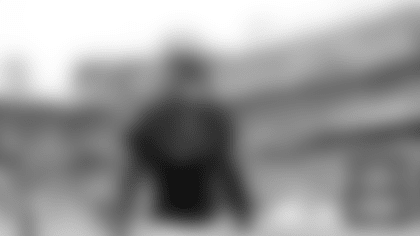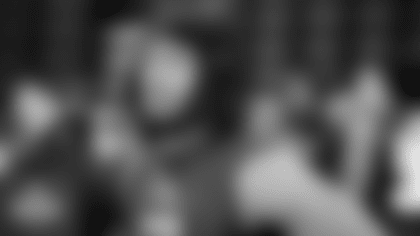You don't know what you can't see.
You will never fully understand the challenges of the NFL calendar unless you've walked a mile in the shoes – or been through strength and conditioning workouts, Organized Team Activities and minicamps – as a player at the highest level of professional football. Sure, the nine-week offseason program of the San Francisco 49ers is not as labor intensive as the upcoming grind of training camp at the start of next month. But truth be told, there was a lot of valuable and necessary work taking place in Santa Clara under the watch of Jim Tomsula's coaching staff.
Players honed their crafts. Coaches voiced their opinions and guided players to pick up new concepts. Improvements were made. Growth took place.
The offseason is winding down.
Finally.
The players will report for training camp by the end of the month. The wait for 49ers football is nearly over. But before the pads start thumping and the position-battle intensity ratchets up, it's only right that we look back at the offseason workload.
We posed four key questions to five players and one coach. We wanted to understand the offseason from their perspectives.
We wanted a glimpse into the training that makes such a difference before the season officially begins on Sept. 14.
We wanted information. So we asked questions.
This is the panel.
These are the answers.

Antoine Bethea:
Getting better. I think each and every day that you come into this building and you get out there on the field, there's always something you can focus in on to get better than the day before. Coaches always say when you step on the field, 'You're either getting better, or you're getting worse. That's the mind frame that I have going into my 10th year. I've seen a lot, but I still feel as though there are some things I can get better at.
**
Kendall Hunter:** Coming together as a team; coming together as one. In the offseason, you're getting to know everybody and you start working together as a team.
Keith Reaser: Just being able to get back out there because I've been out for a while – I haven't played football since October of 2013. The first day – I felt like a kid playing his first day of football; I was just excited.
Dres Anderson: I would say resting, relaxing and getting the off time where you can enjoy yourself because you know football is almost year-round now. The offseason is the time to get yourself ready for the season.
Dillon Farrell: The down time that you get to travel and see friends and catch up on life. Because during the season, there's a lot of long days, a lot of film watching and preparation for the next game. I'd say the ability and time to relax is key before the season takes place.
Geep Chryst: I like to practice. For coaches, we spend a lot of time on the chalkboard thinking that this may be a good idea and then you maybe meet, you show examples of how a play could work, but it's great to practice. It's great to go against our own defense and be challenged. I think that's always central to any practice. There's a spirit of competition, and I think it's great.

AB: You always want to be around your family. Offseason is down time – it's your time. There's always some days where you're kind of dragging going to work – you could be at home with your kids or your family and friends – but at the end of the day, this is what pays the bills. So I'm happy to be here regardless.
KH: I don't know… I don't think there is a worst part, really.
**
View the top photos of all the new San Francisco 49ers players from the team's offseason workouts.
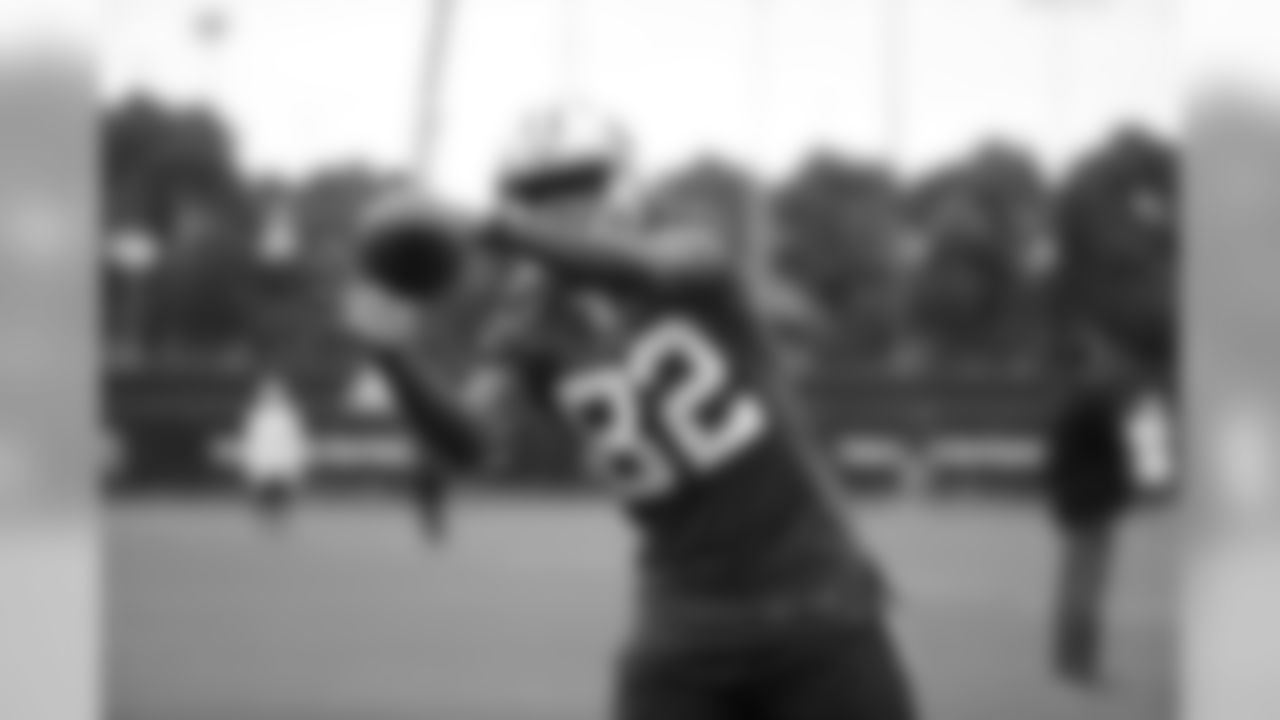
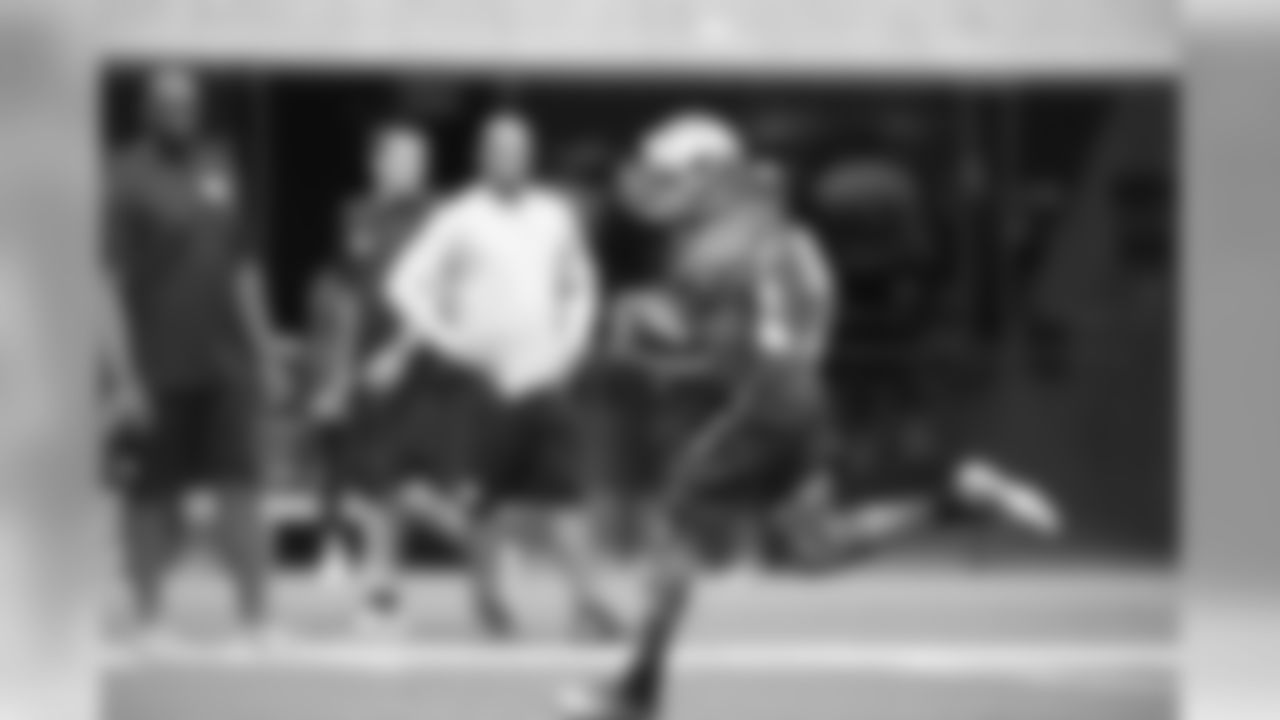


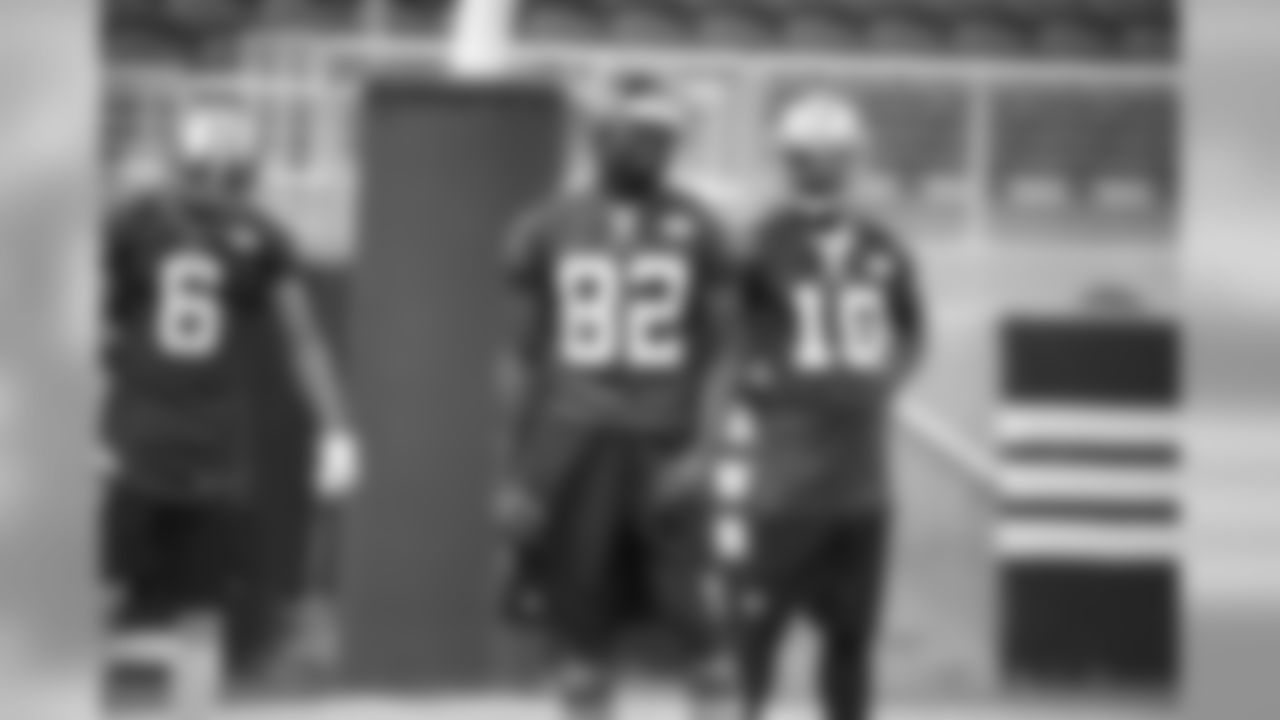
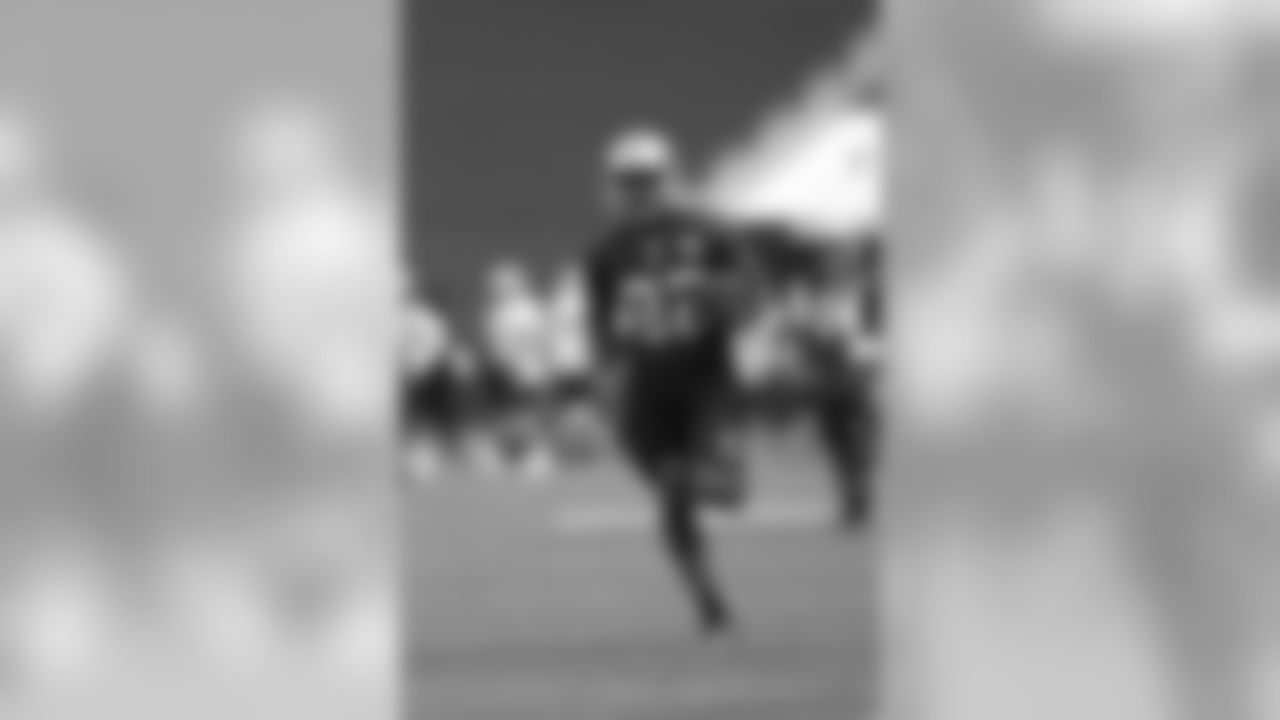
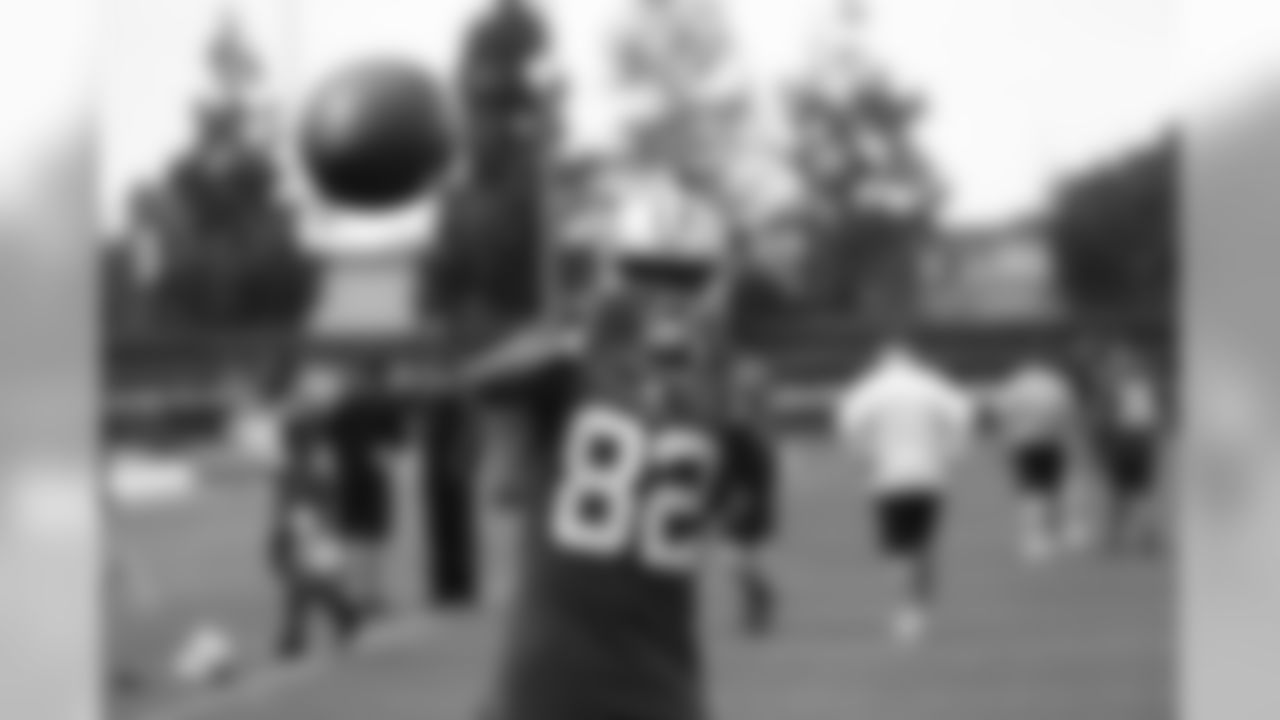
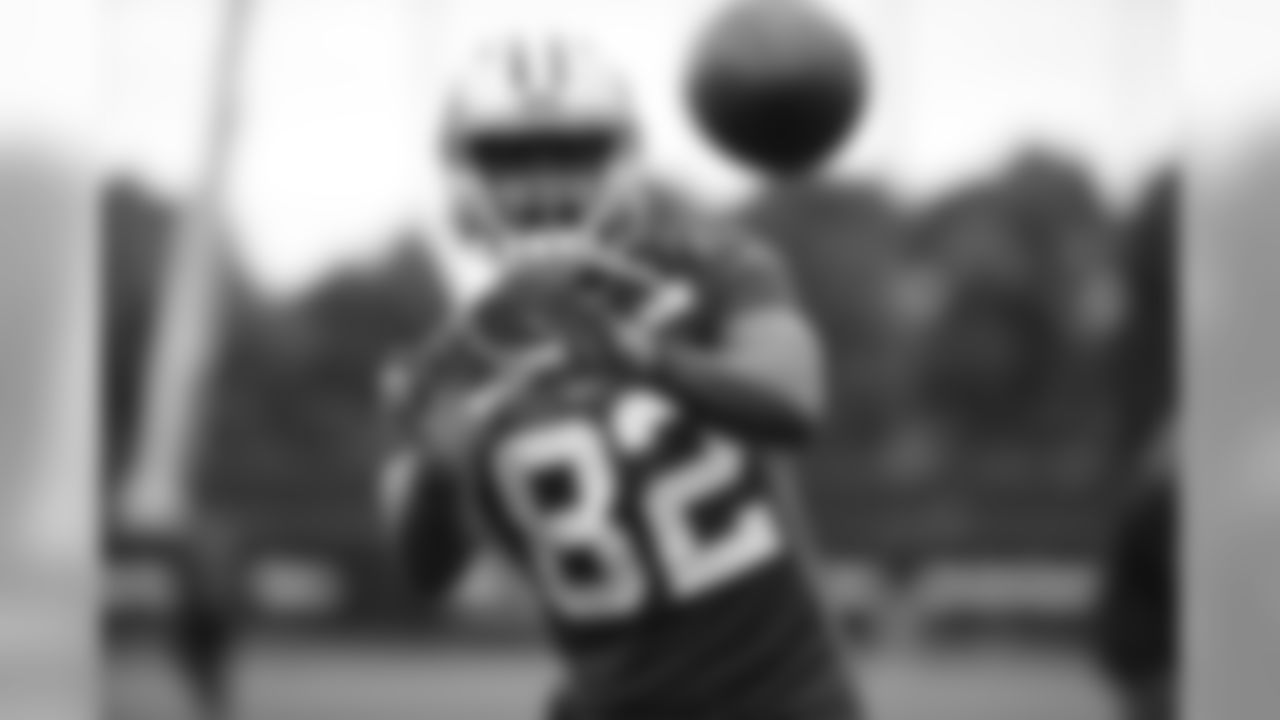
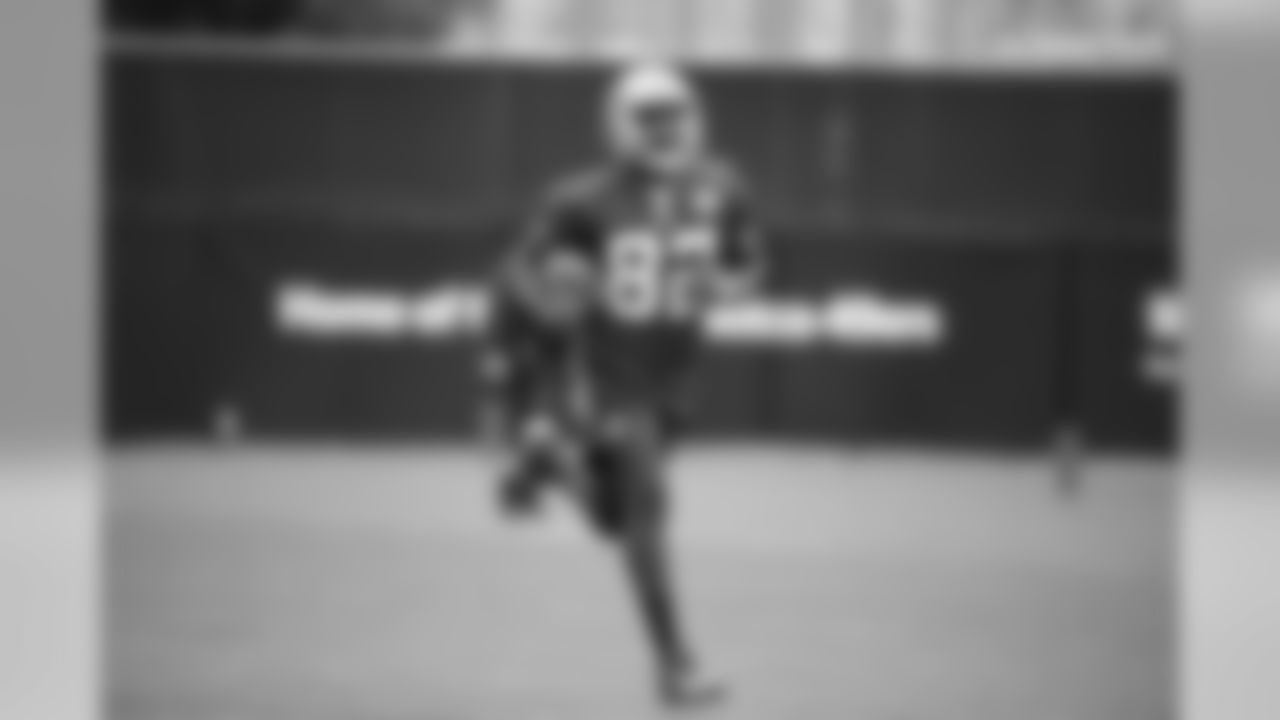
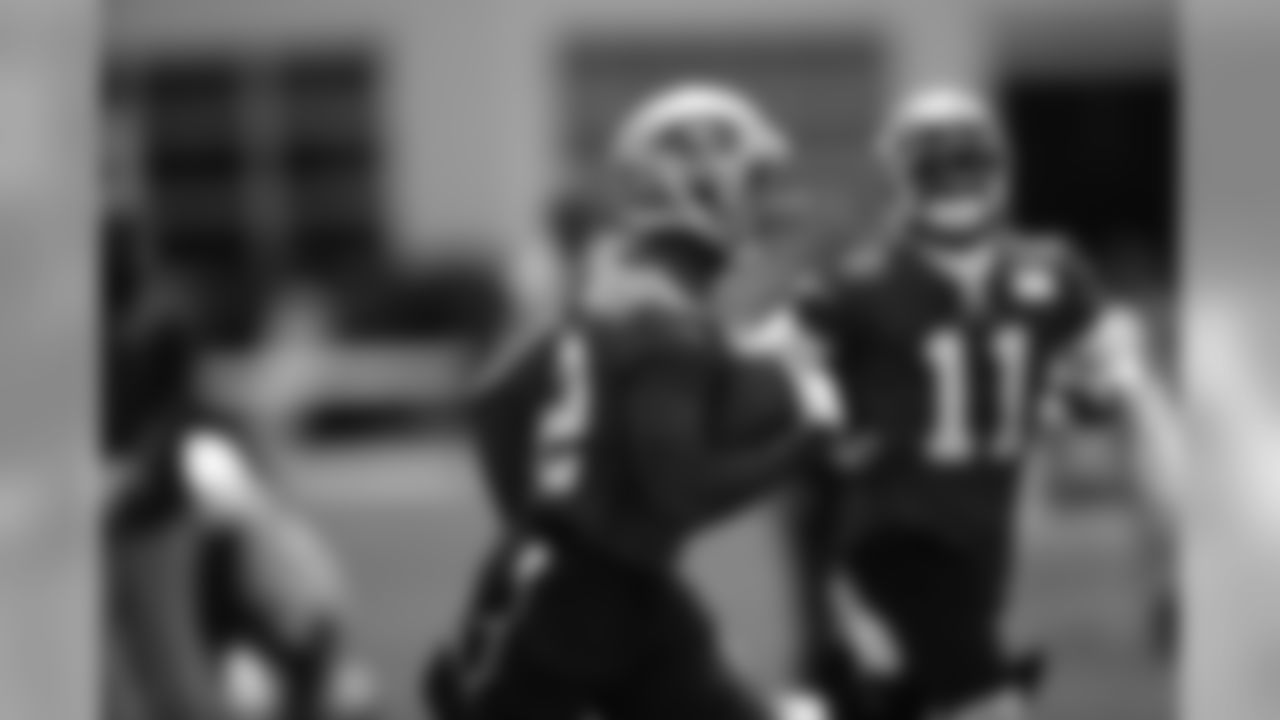


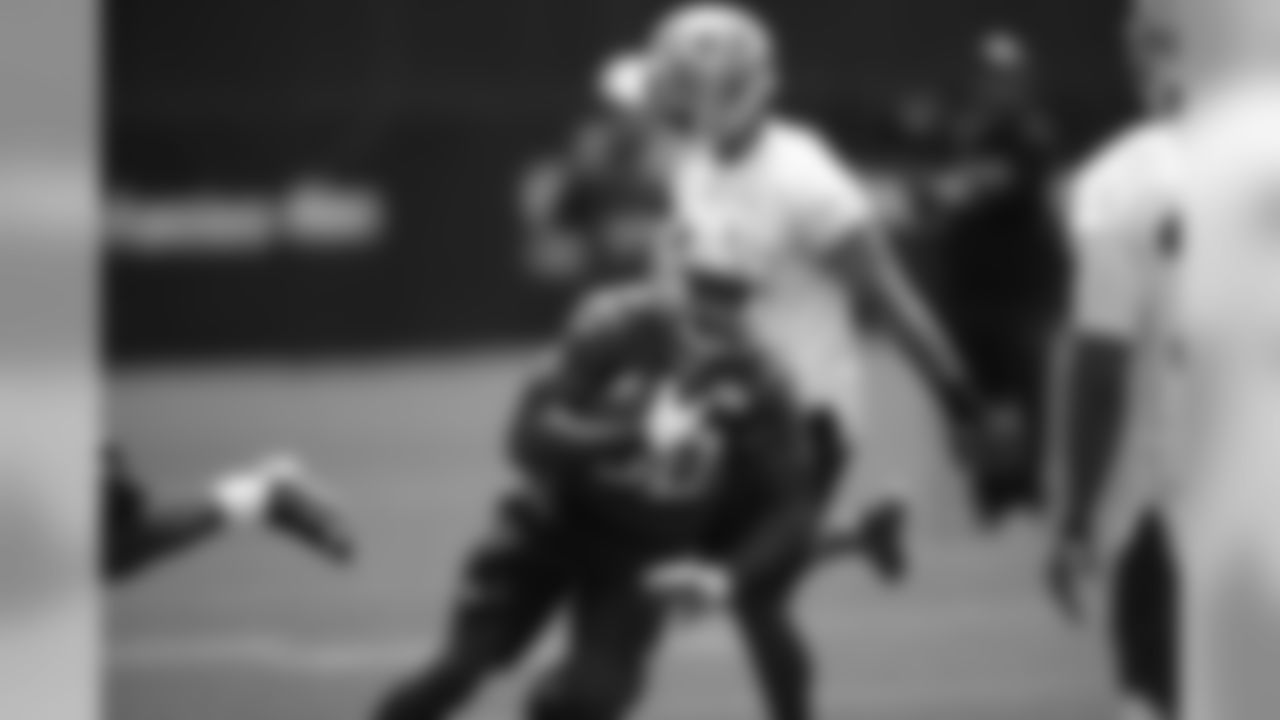
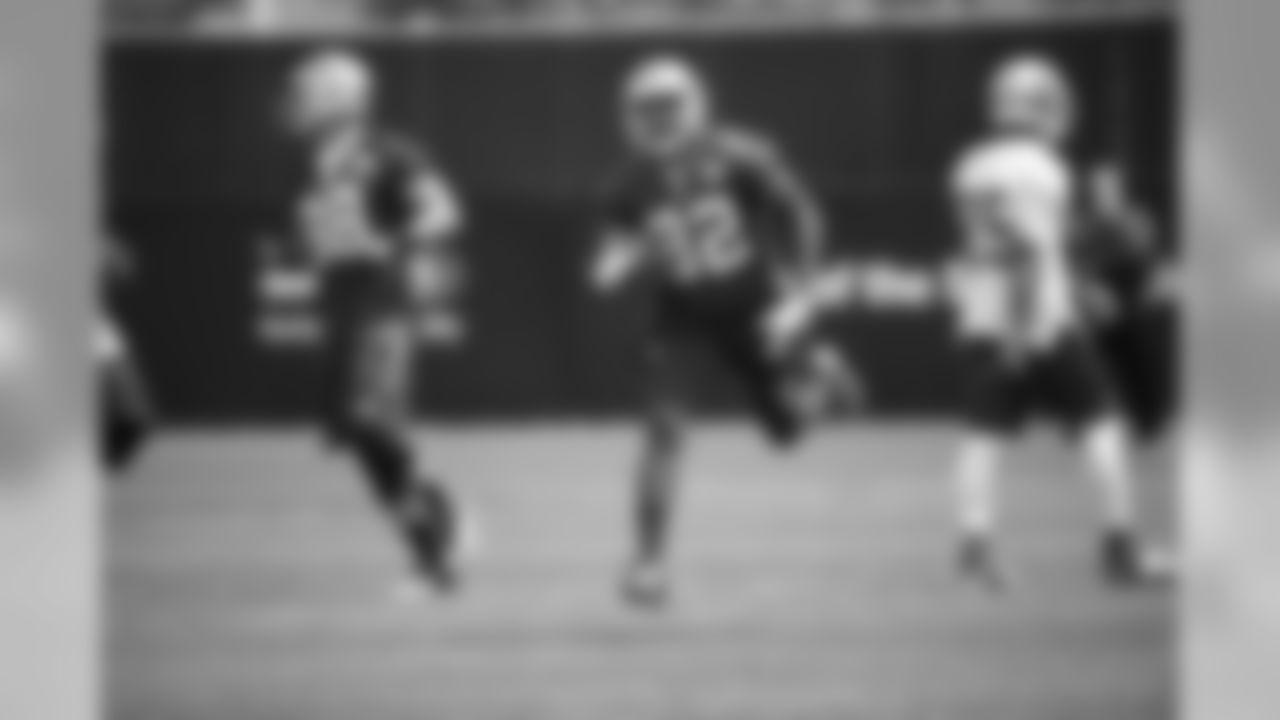
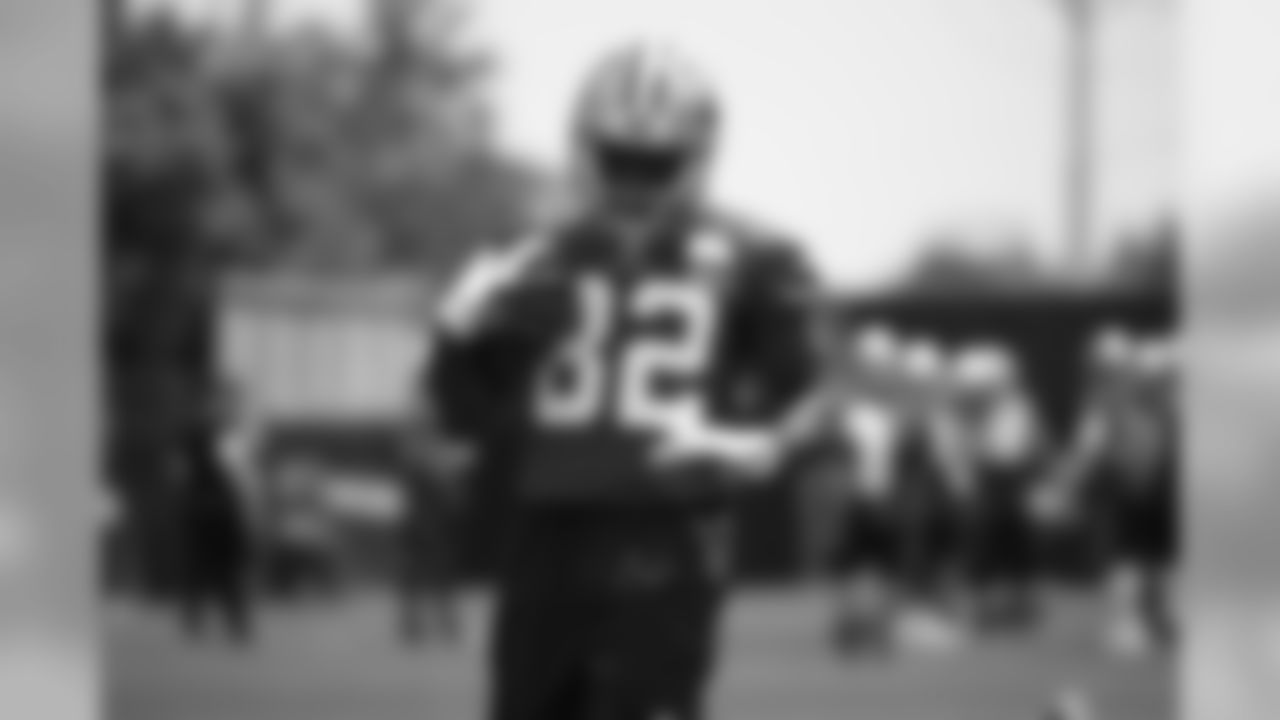
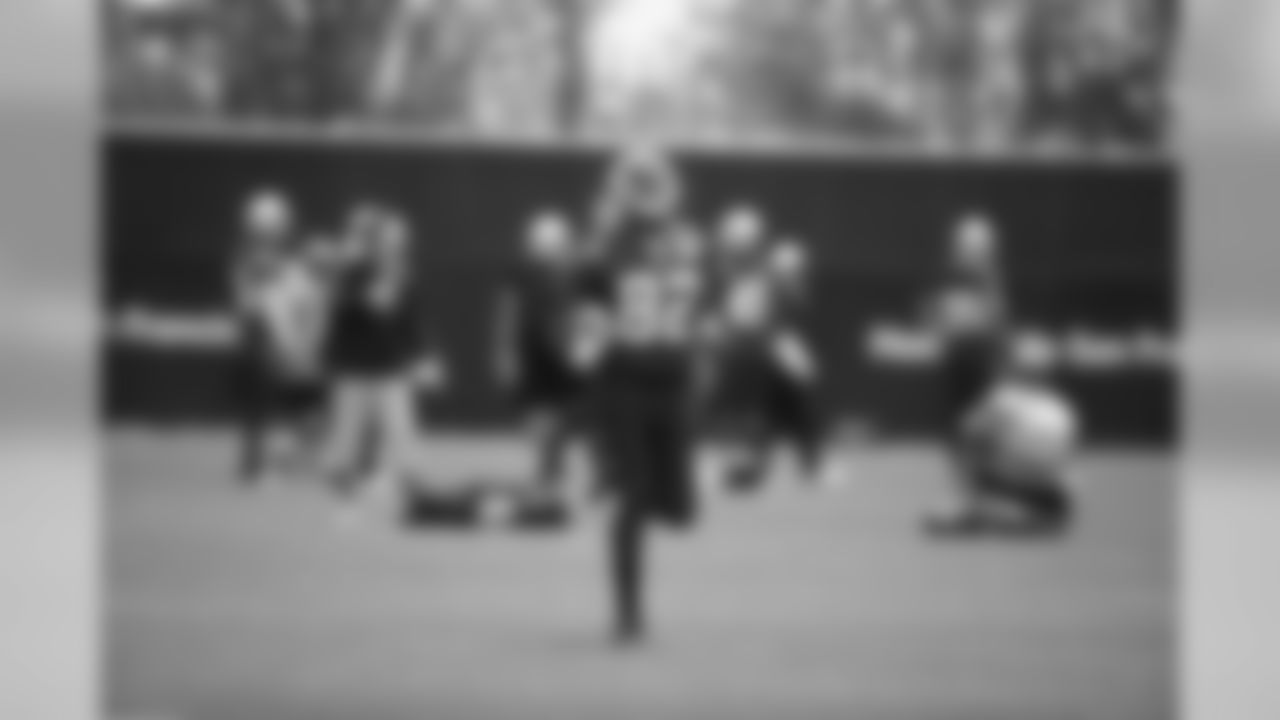
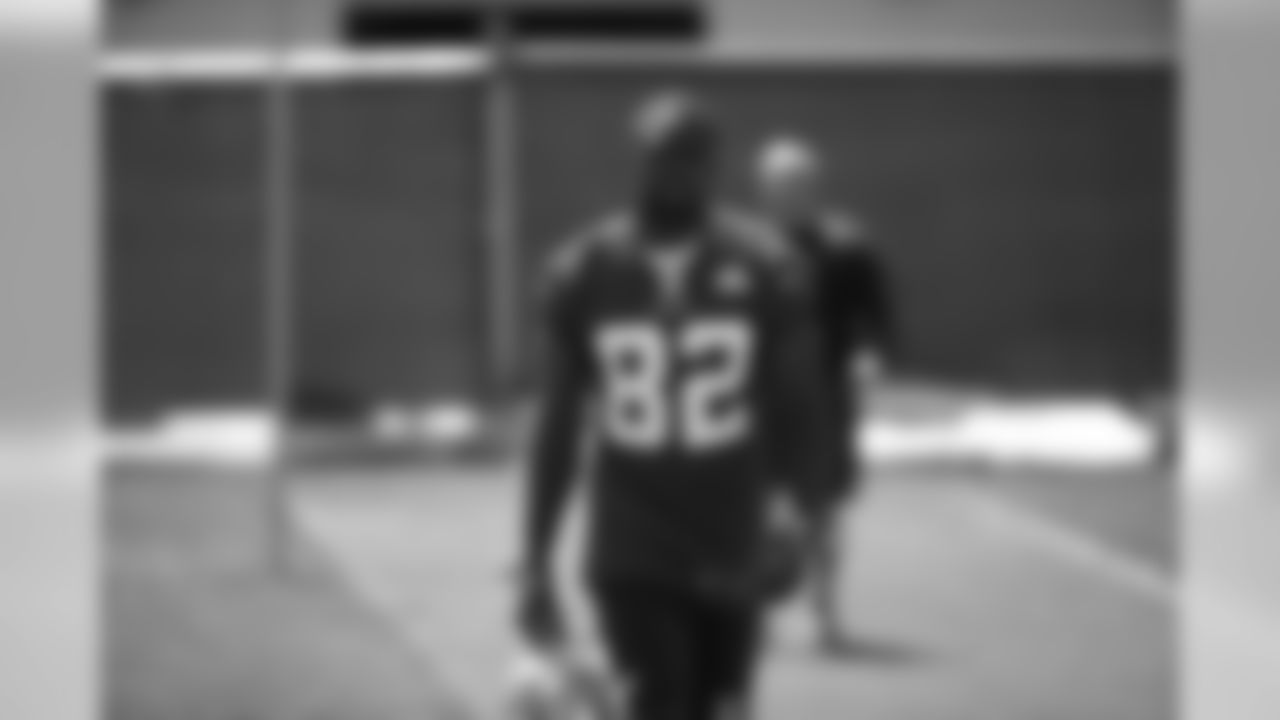

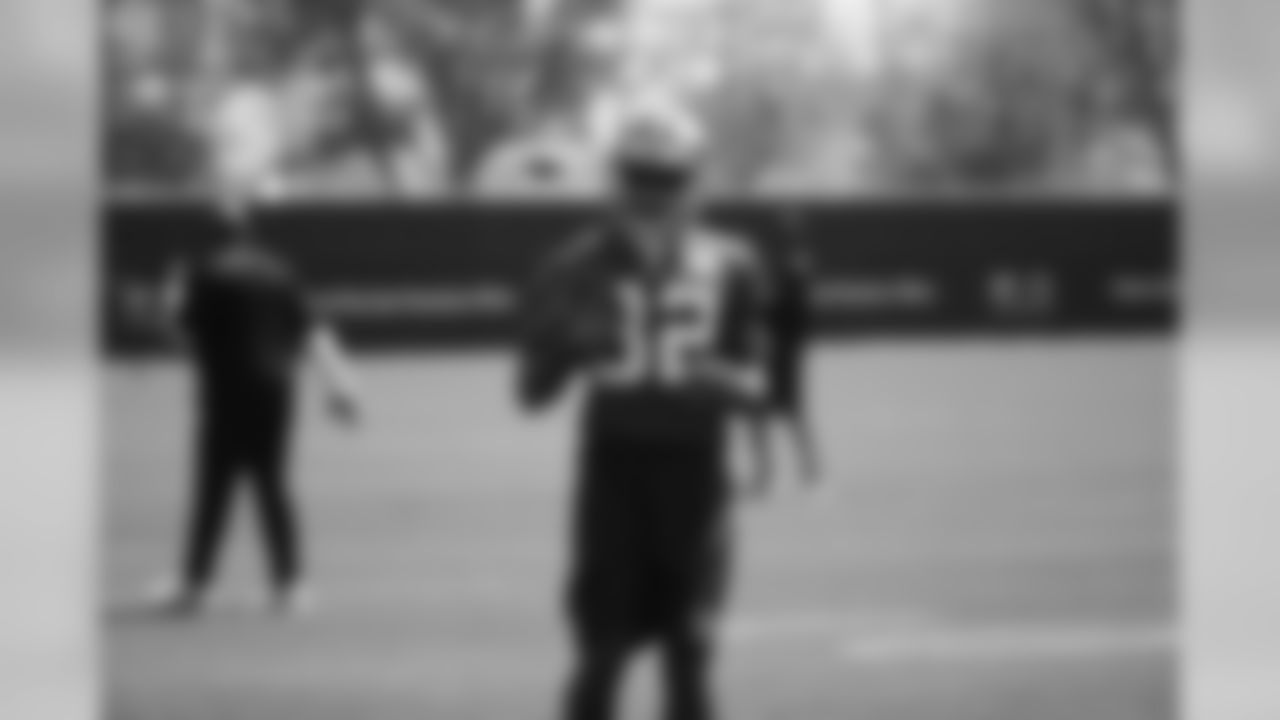

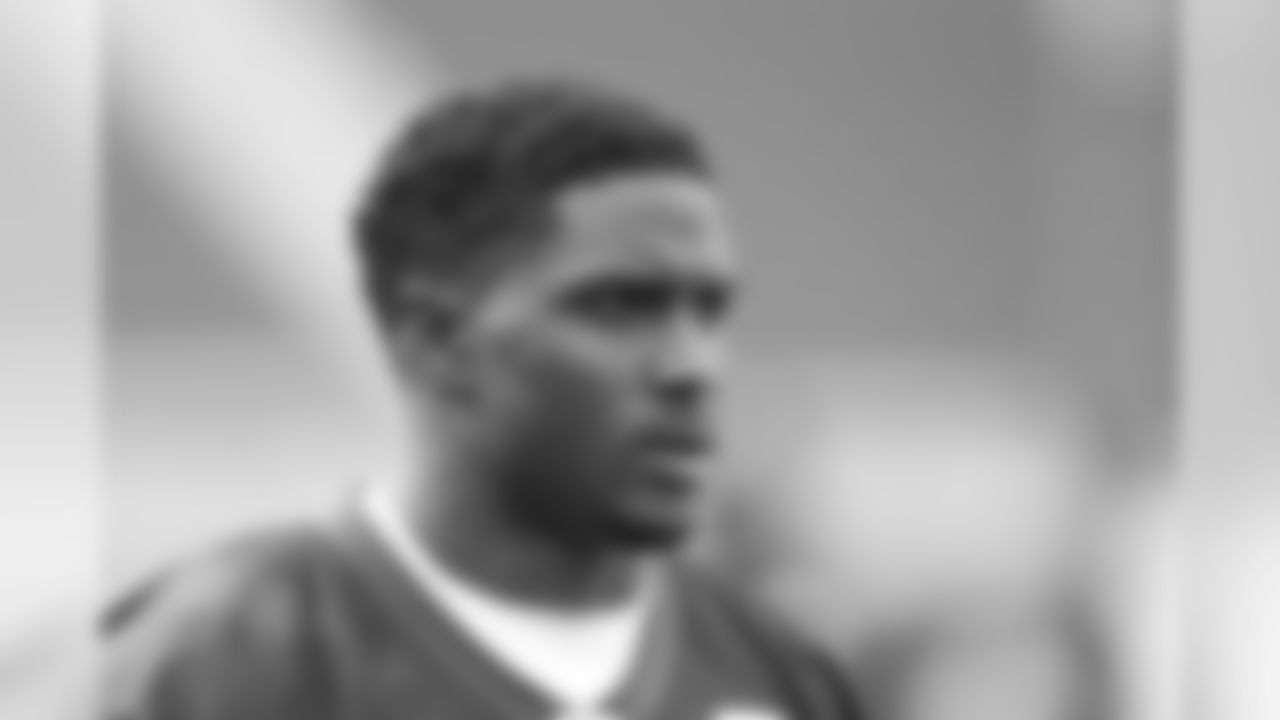
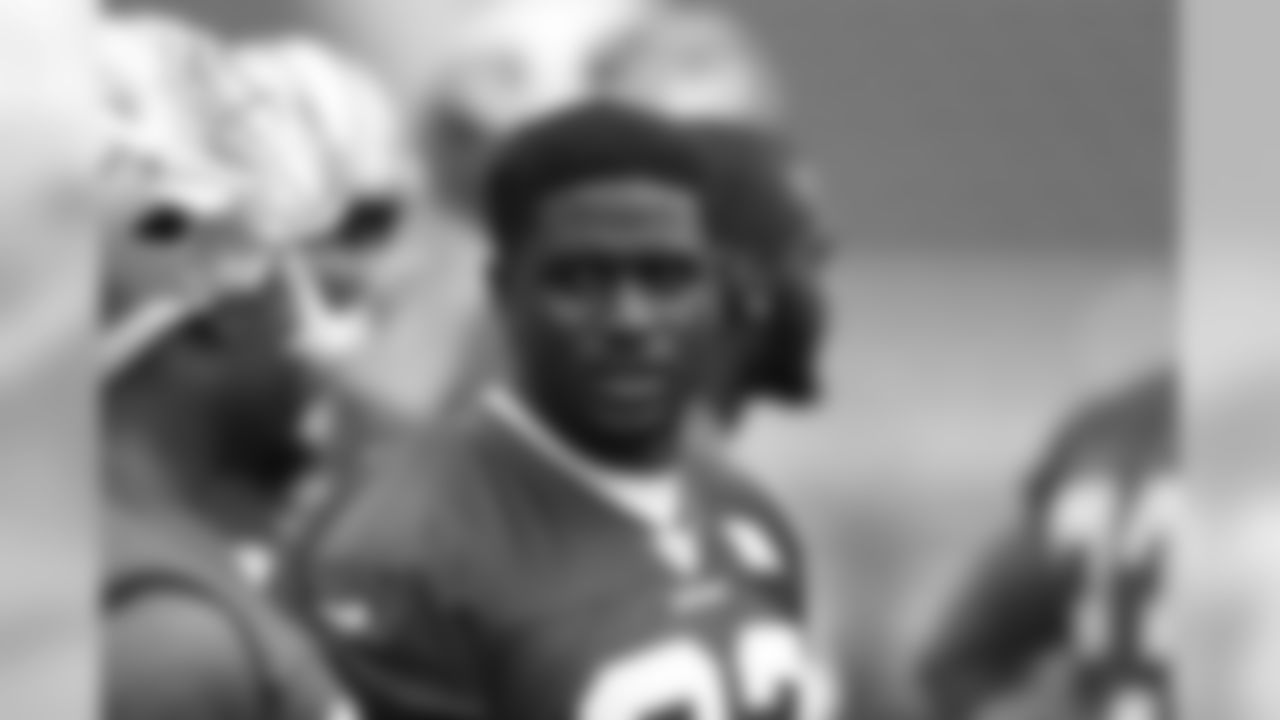



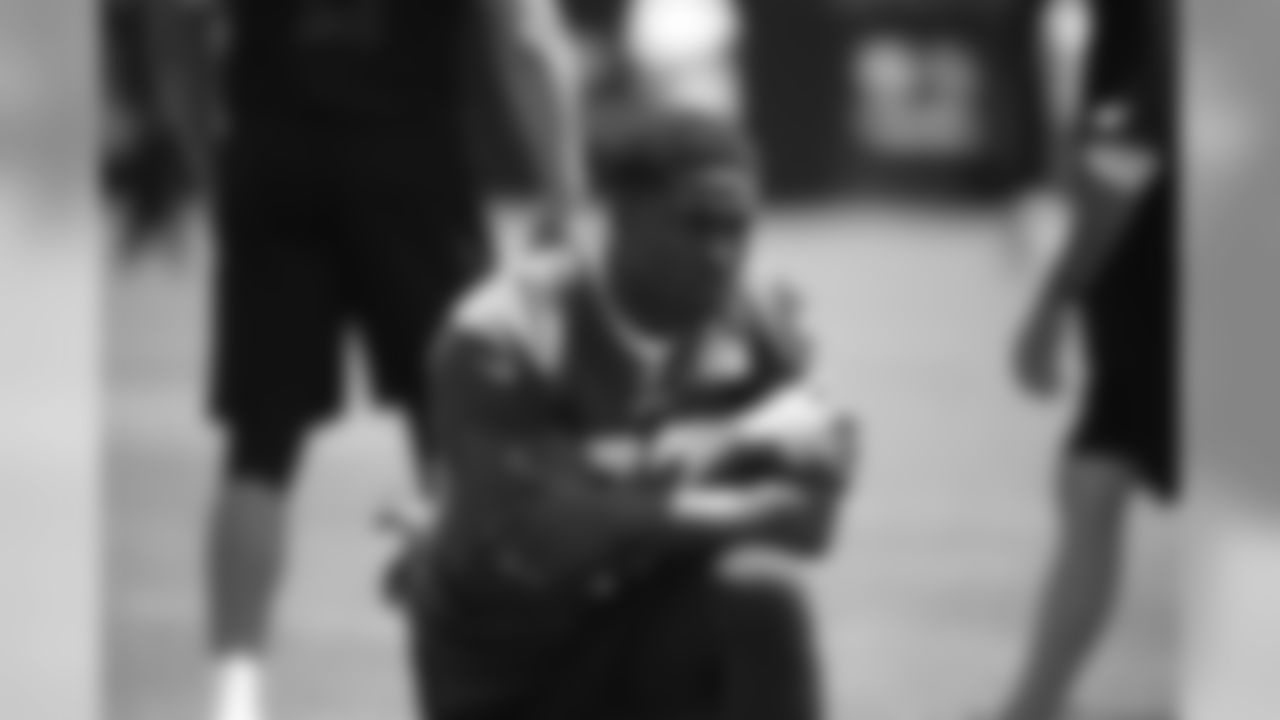

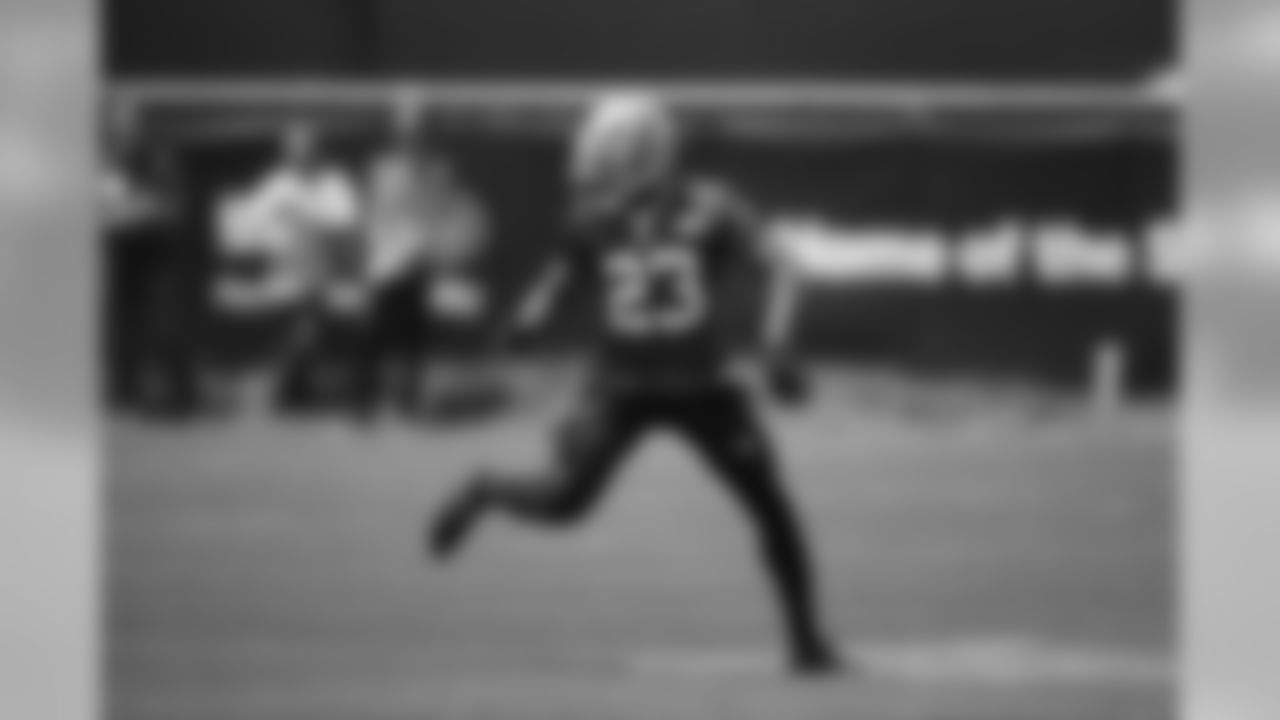
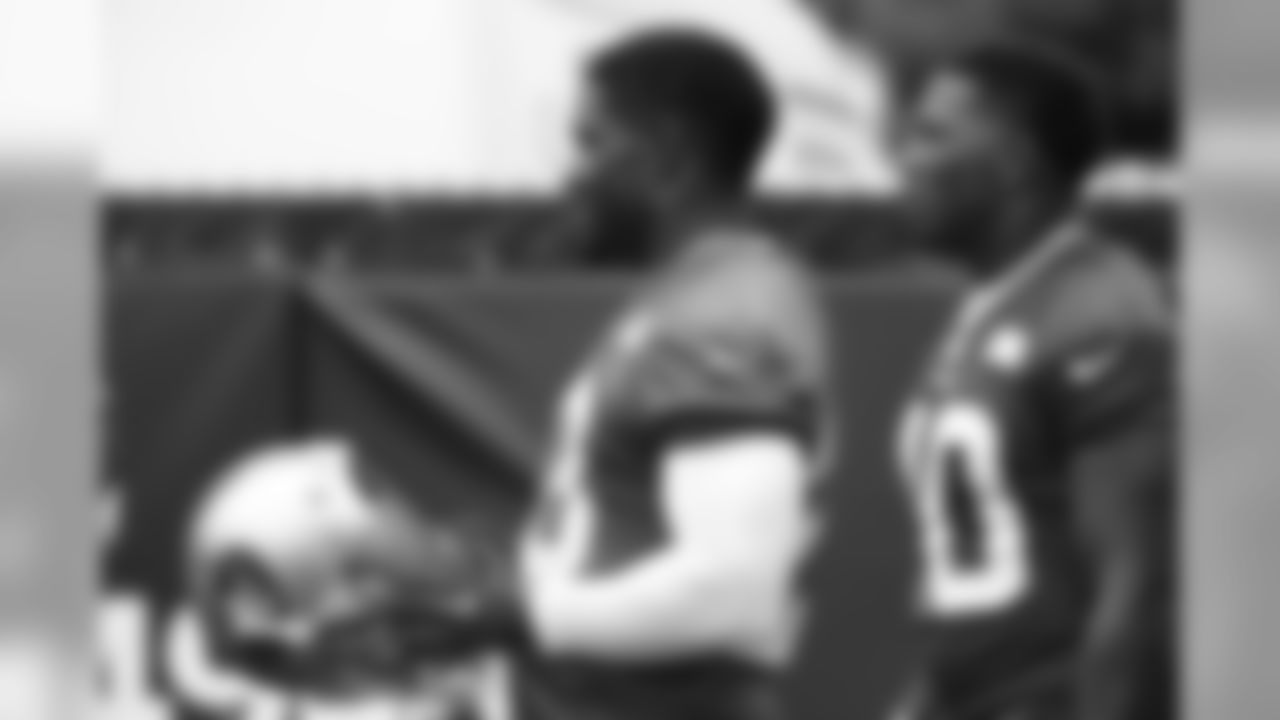
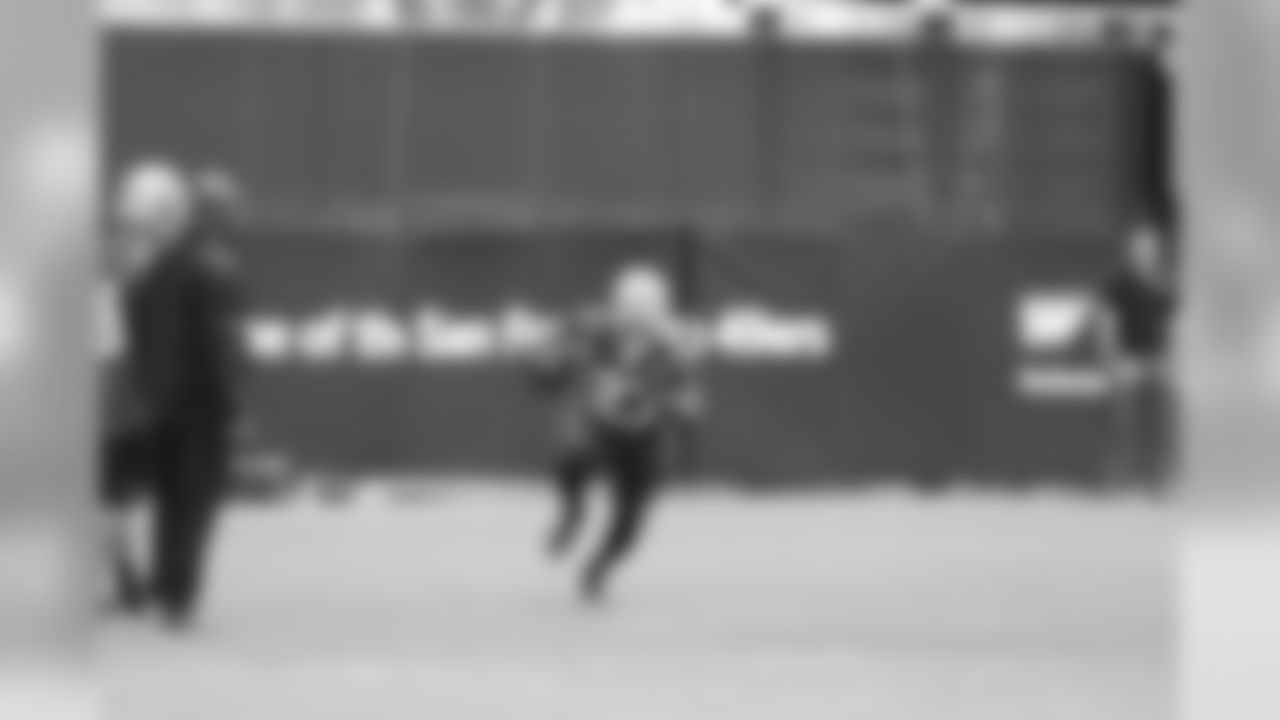
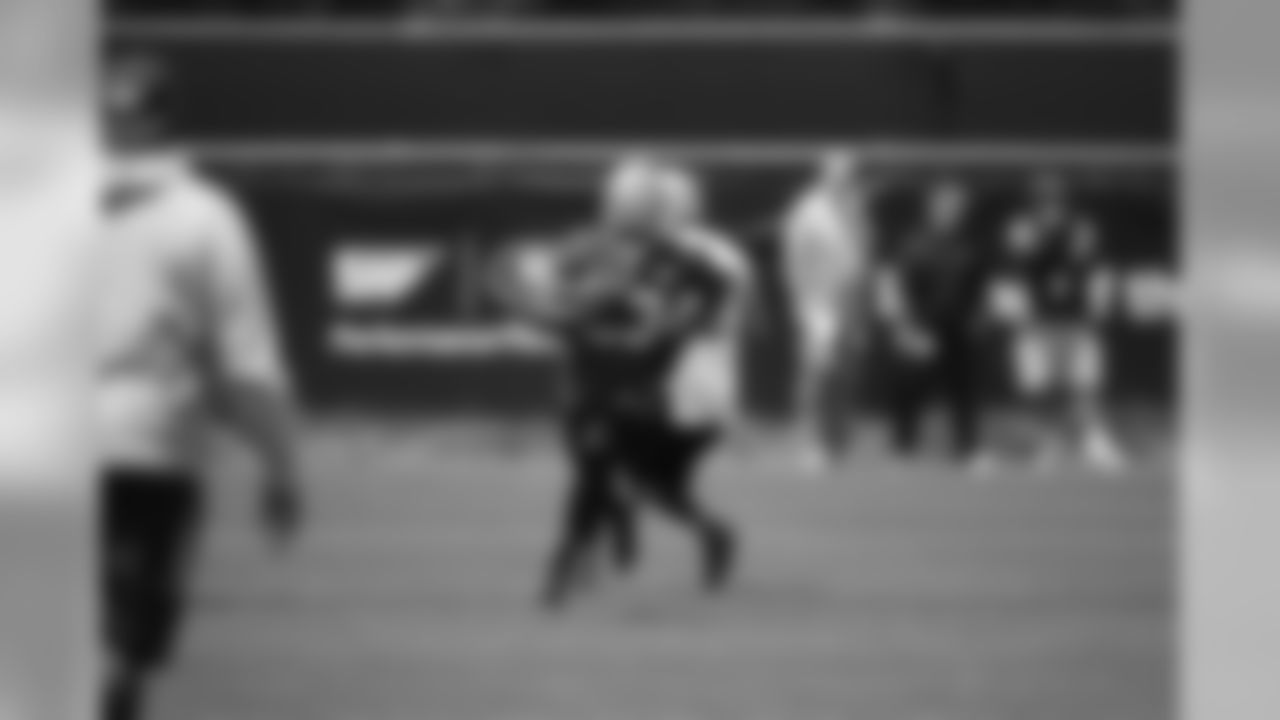
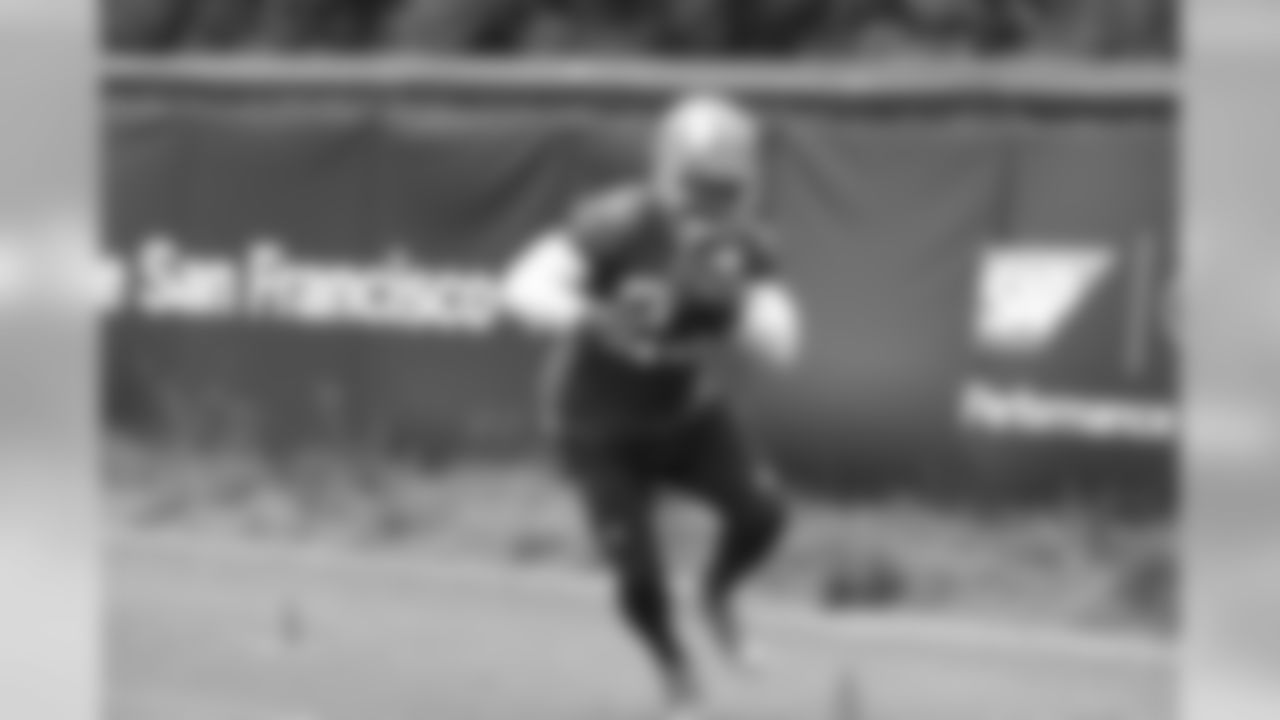
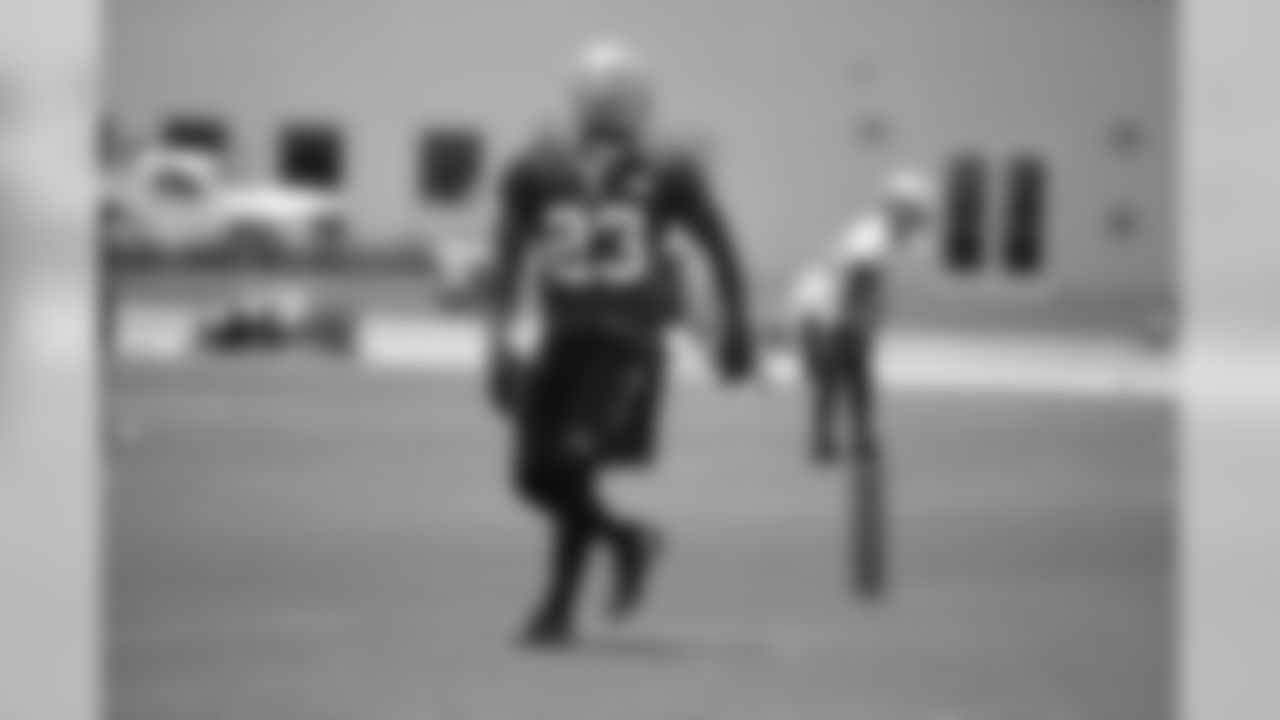

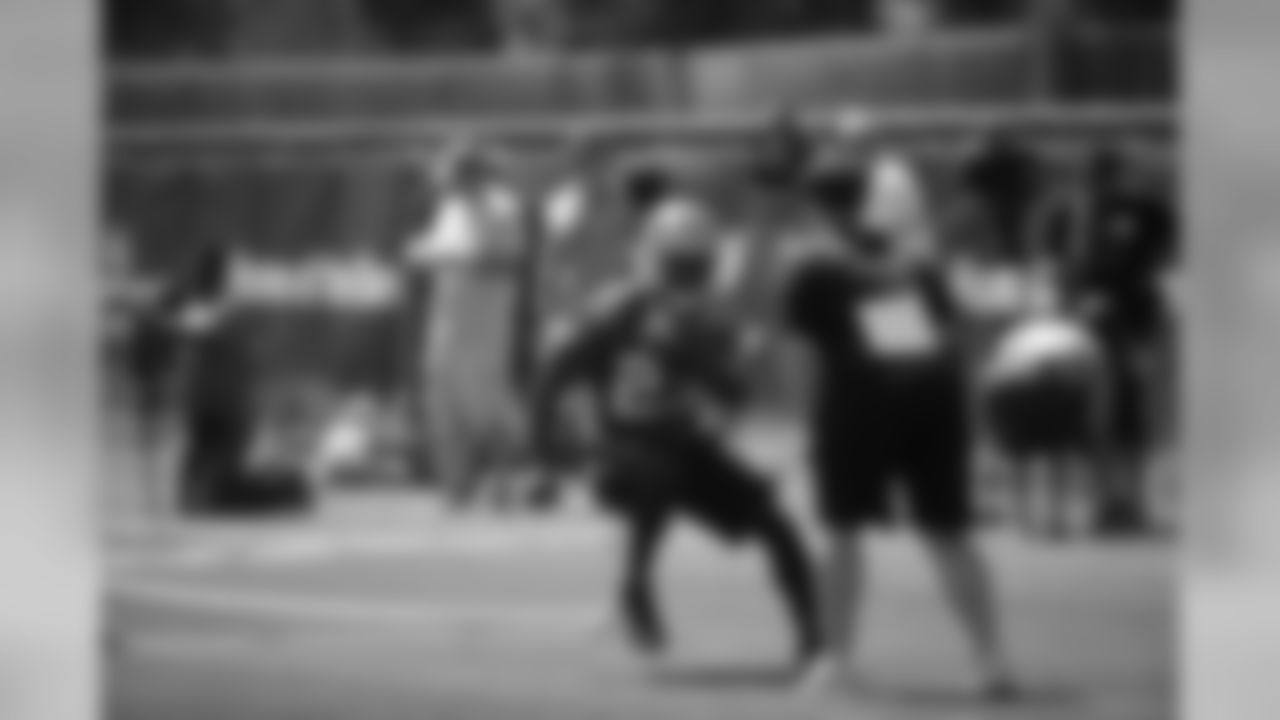

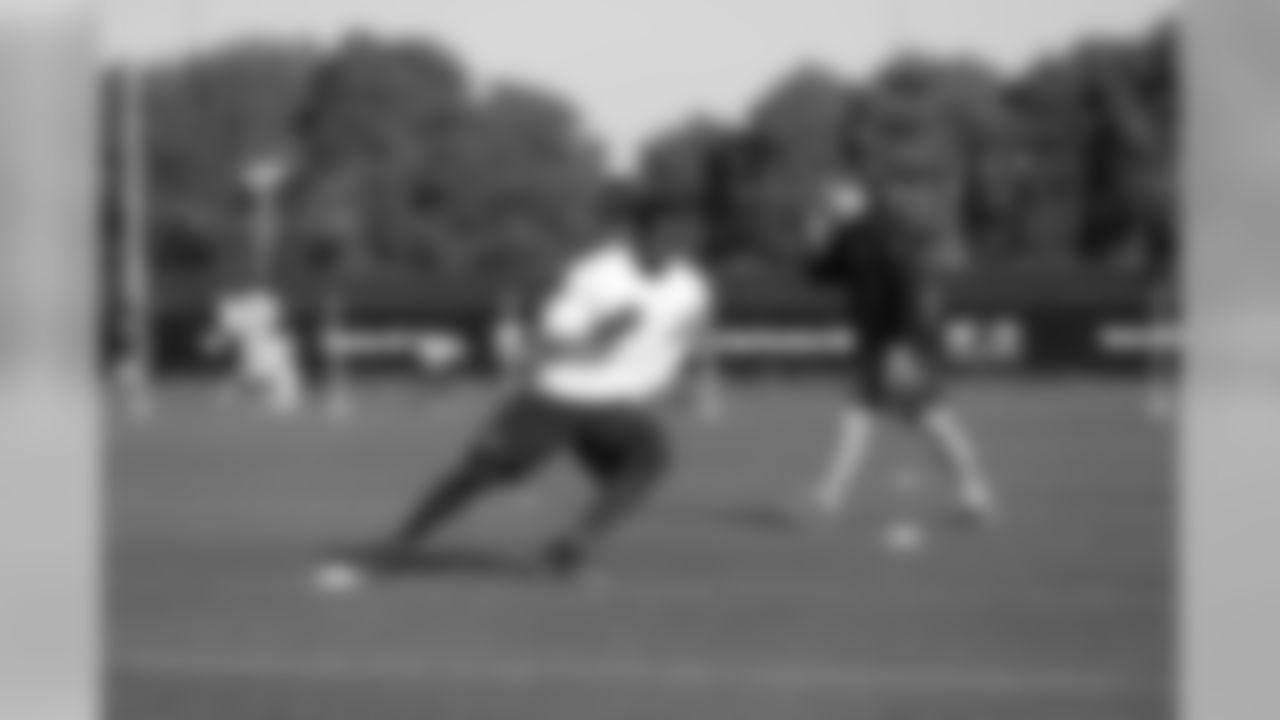
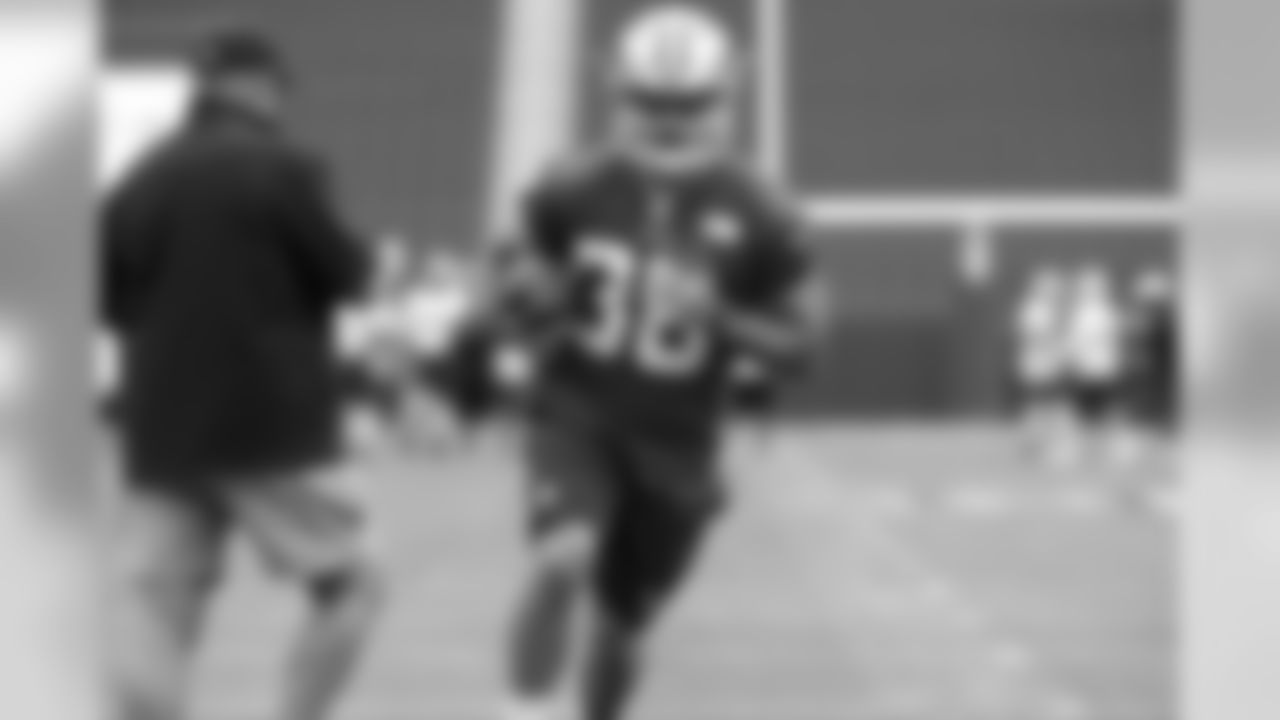
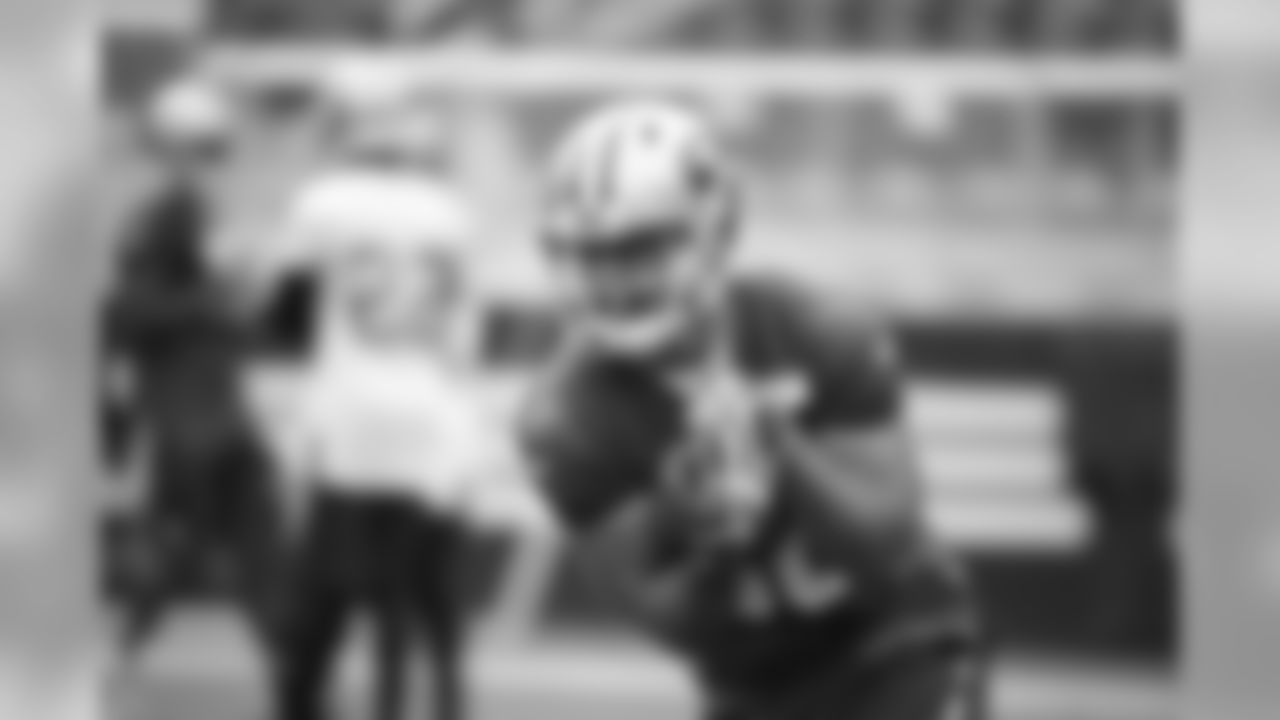
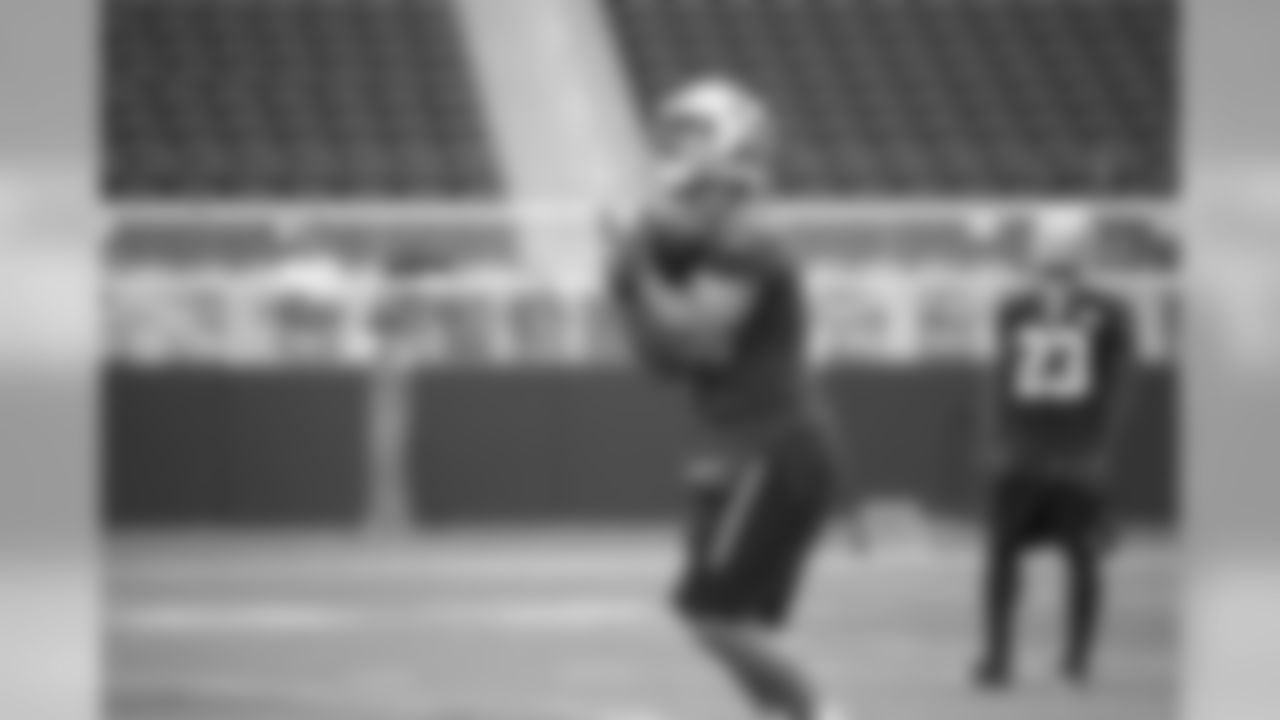

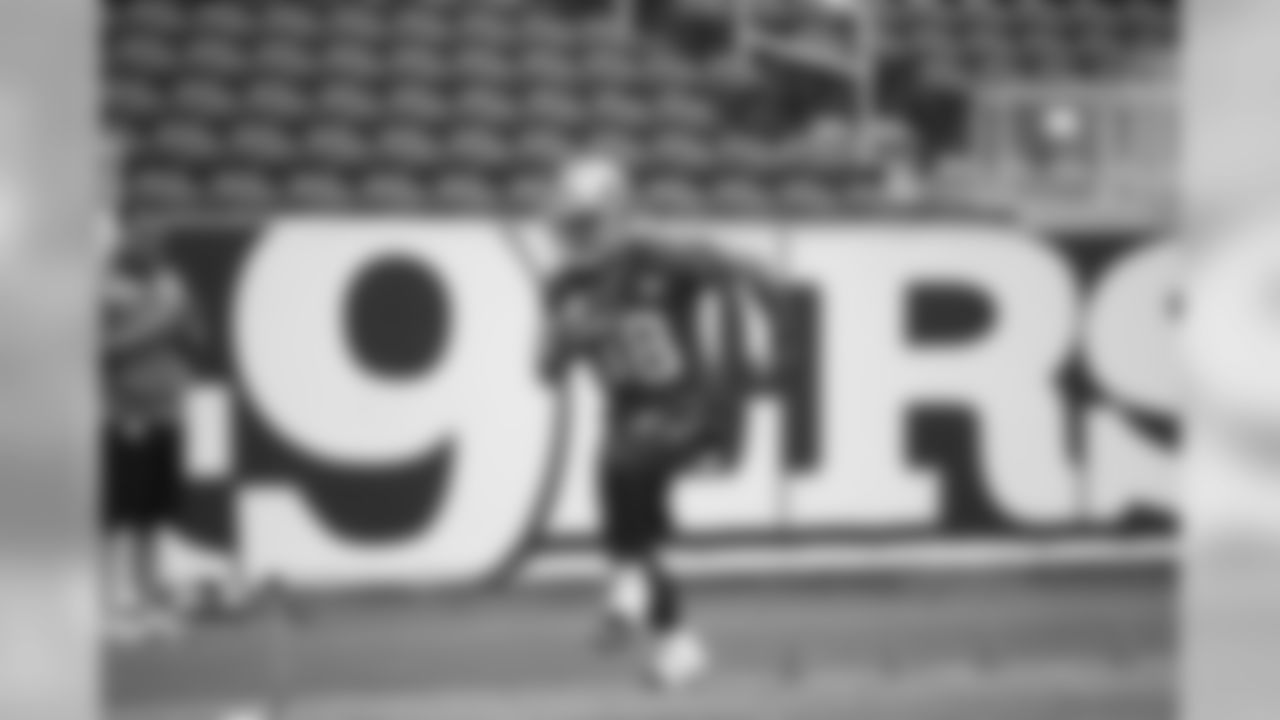

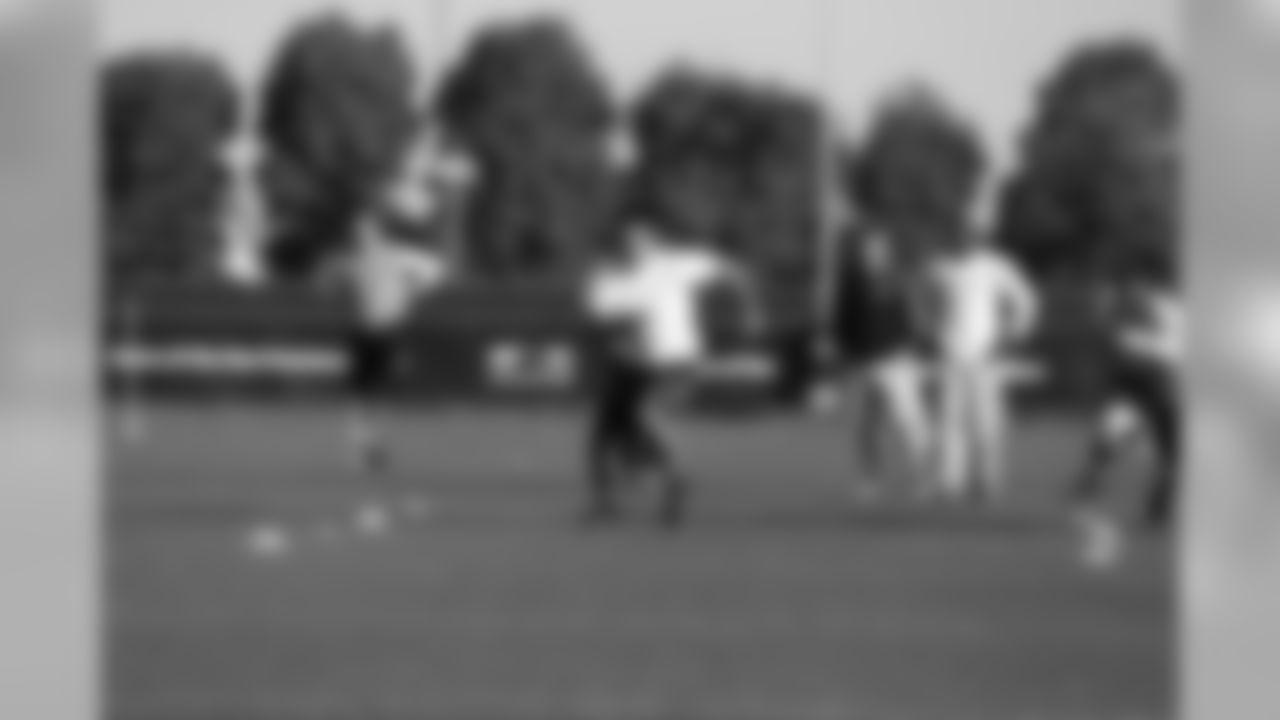
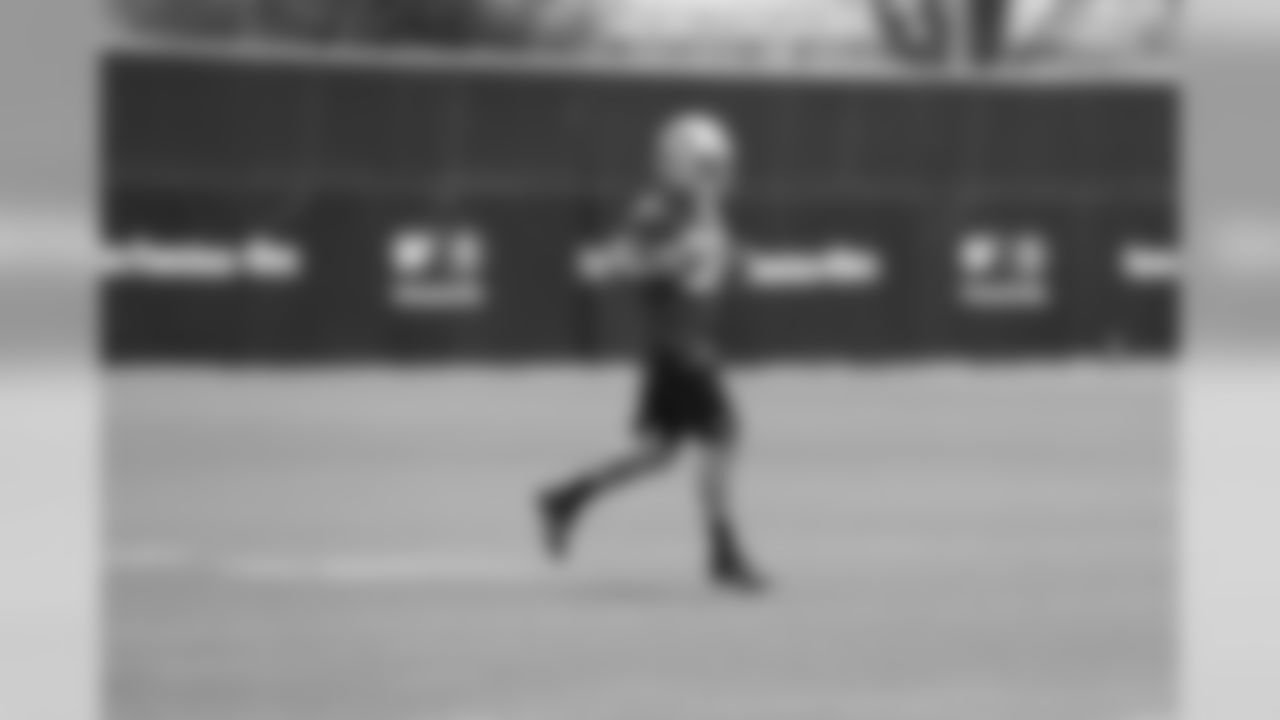
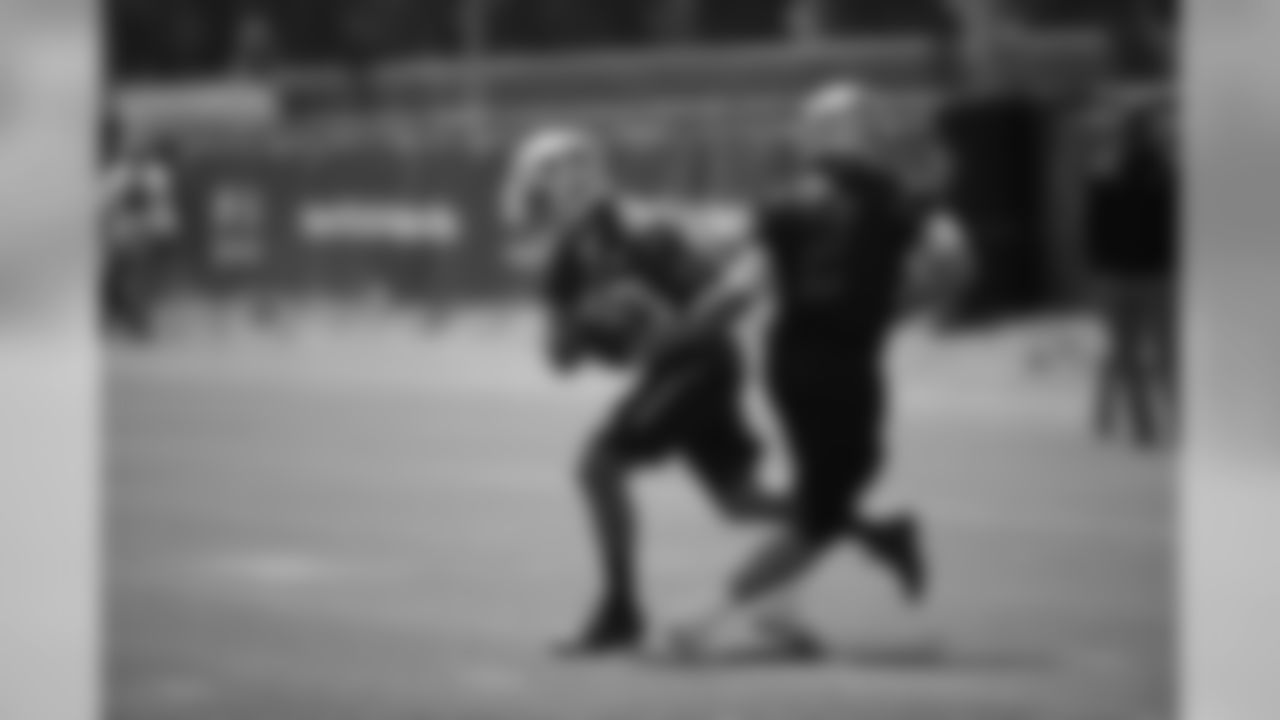

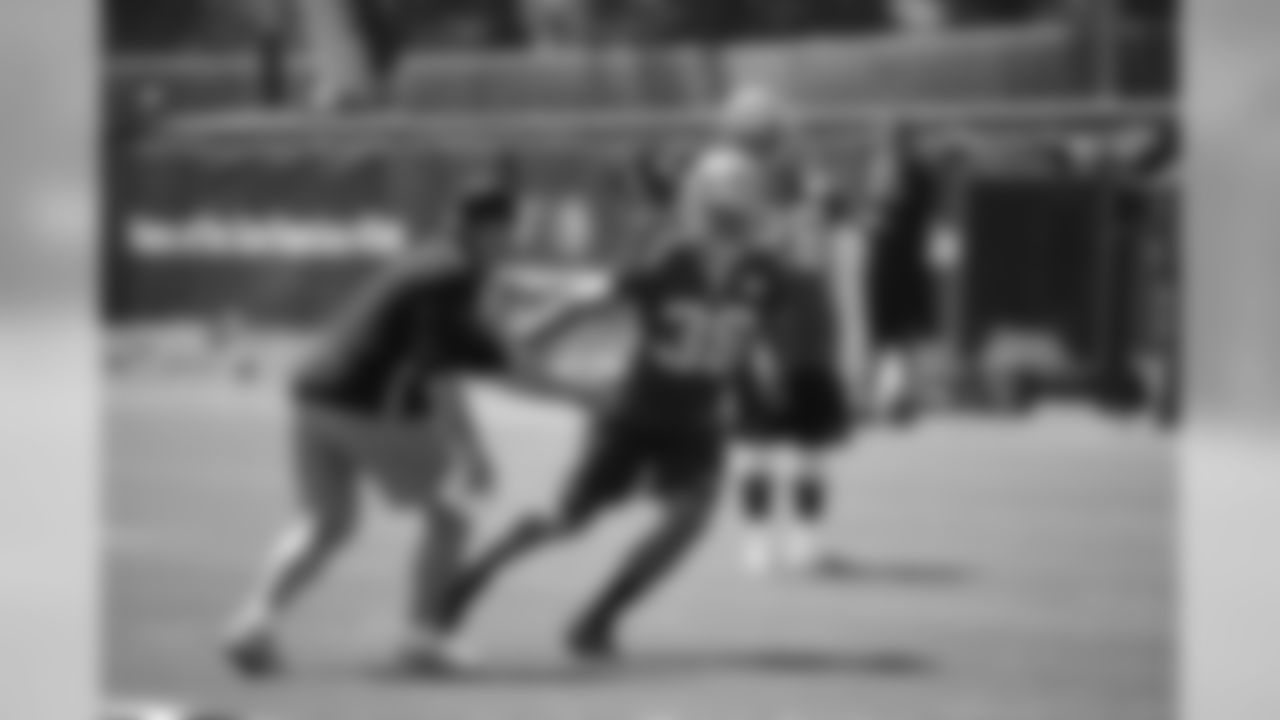


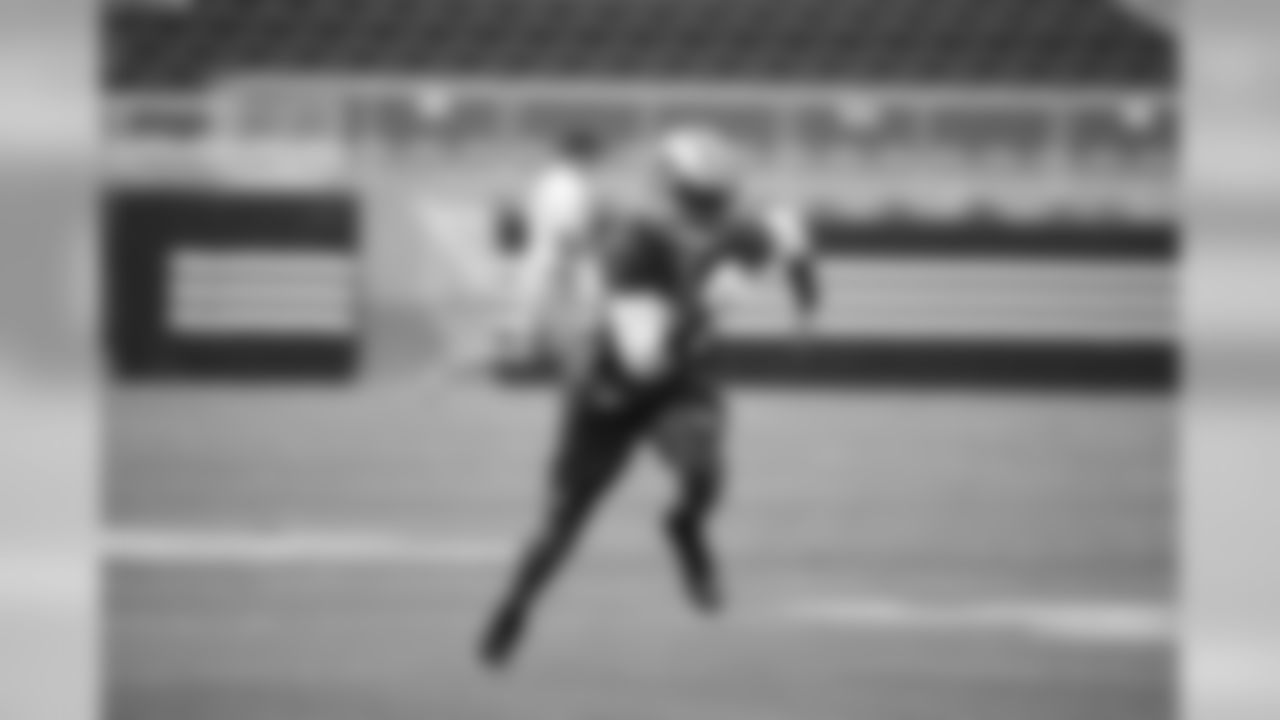

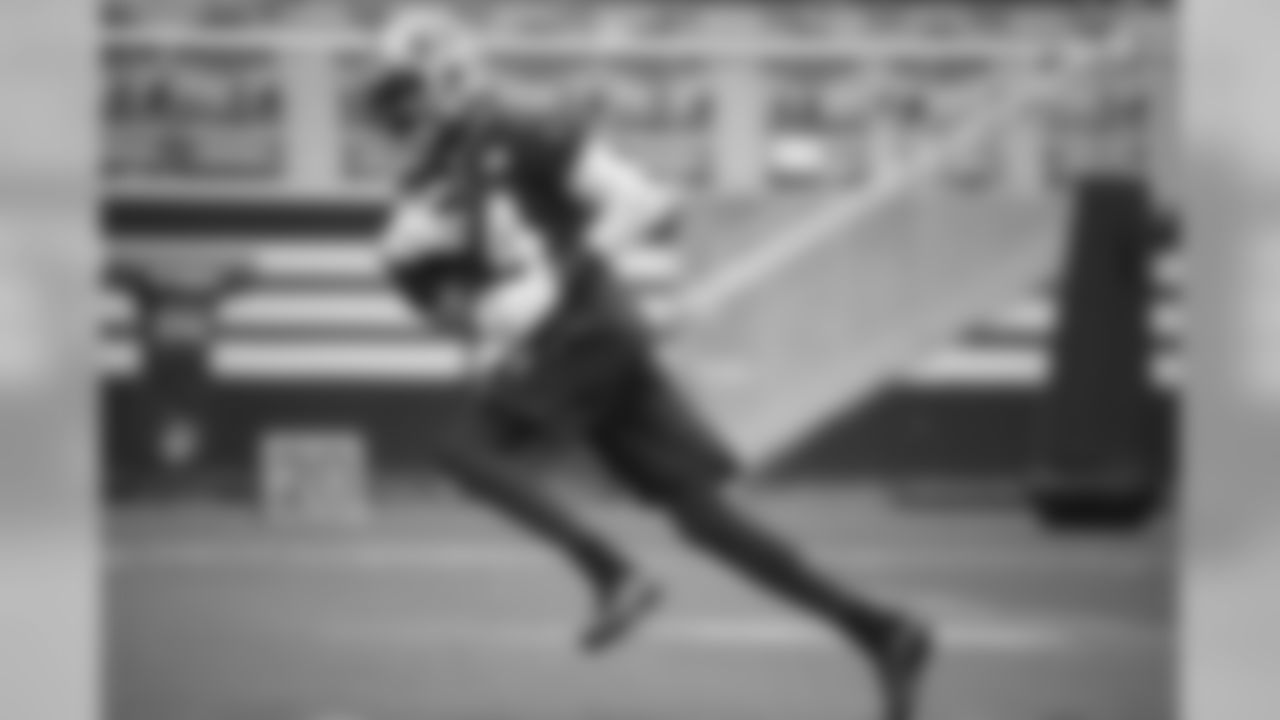
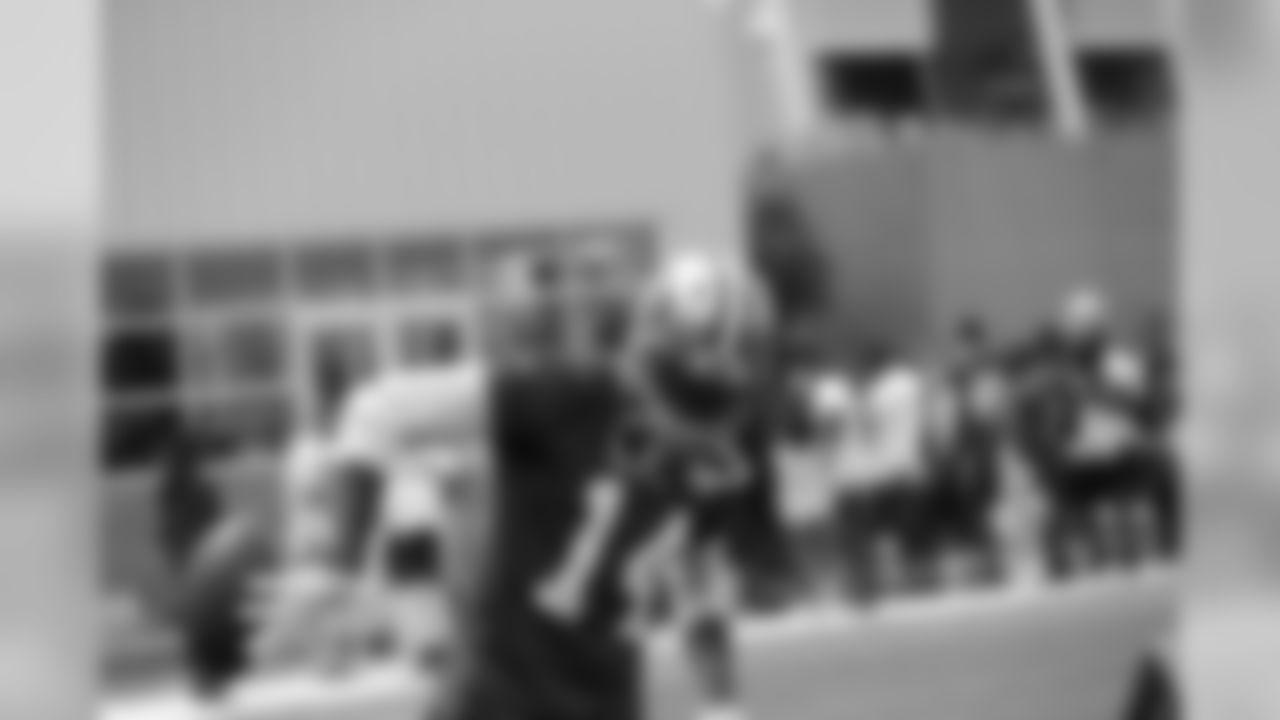

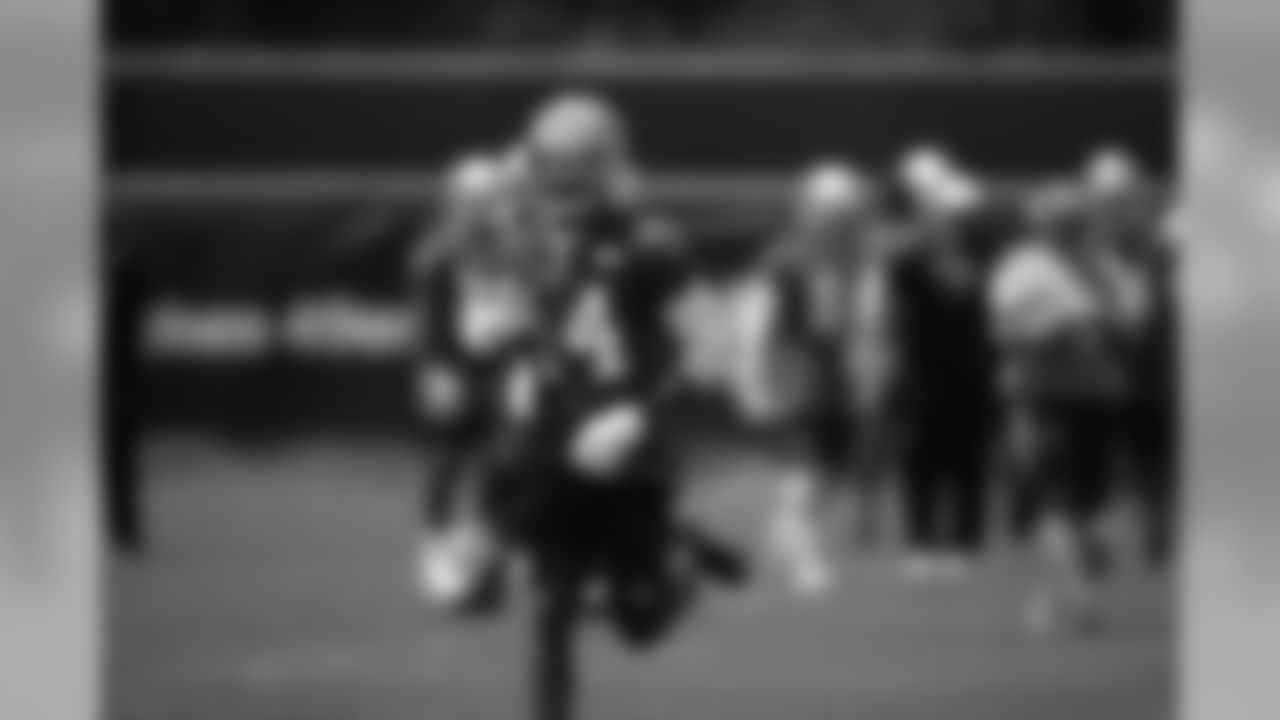

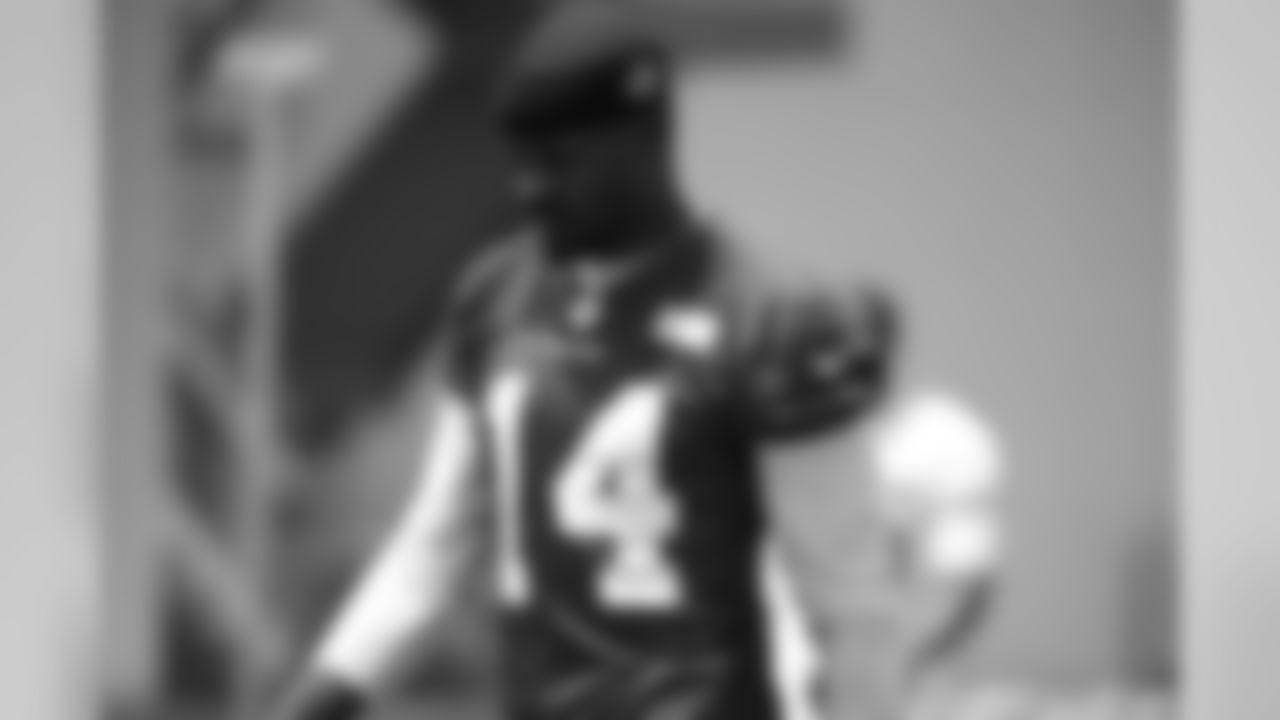

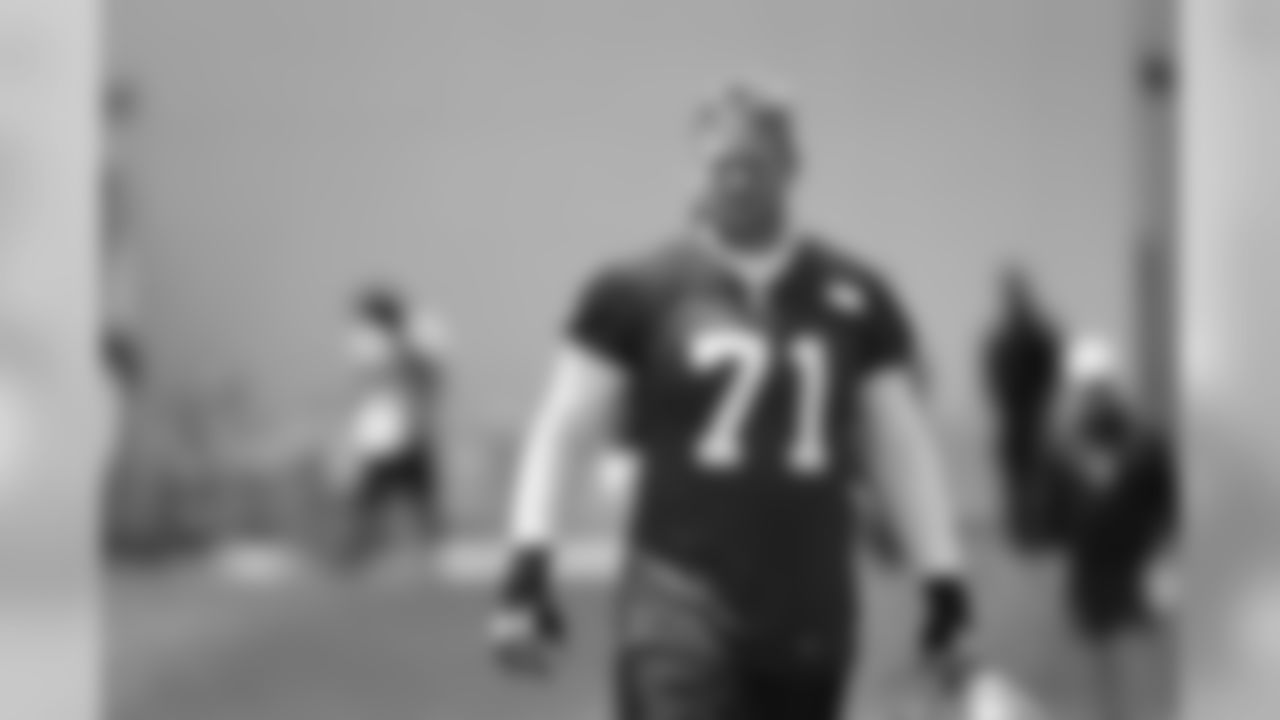

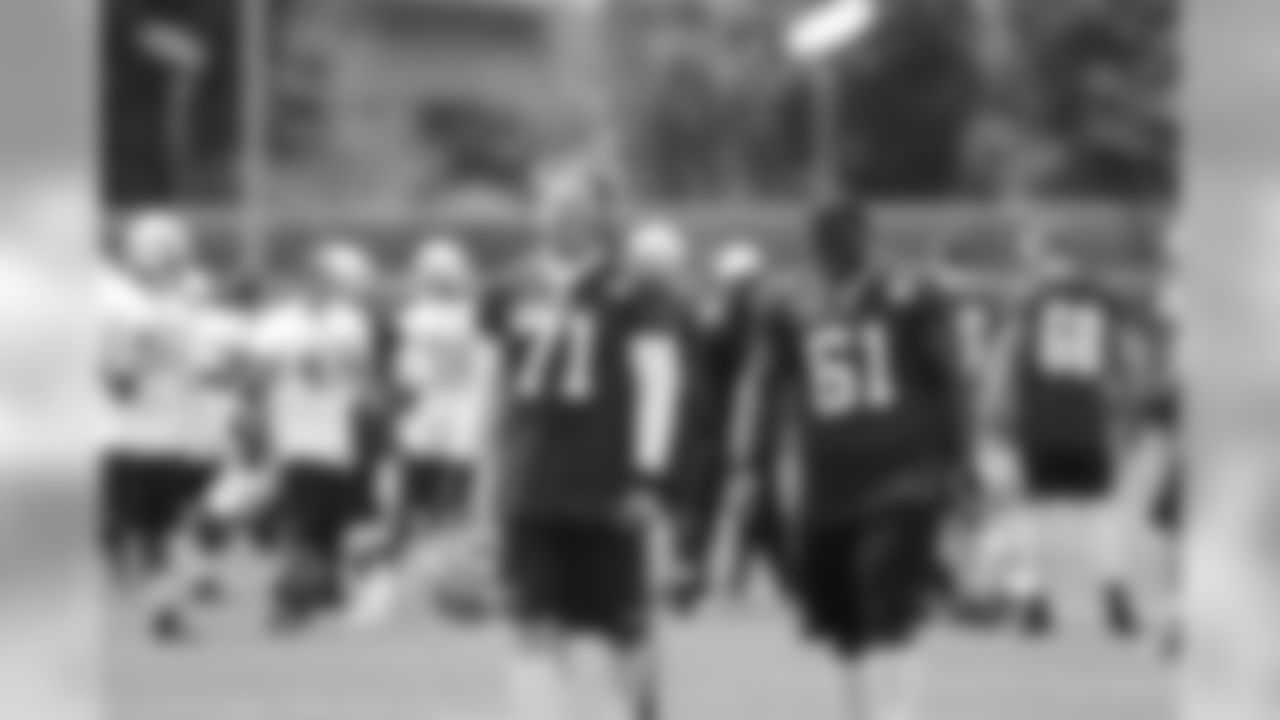
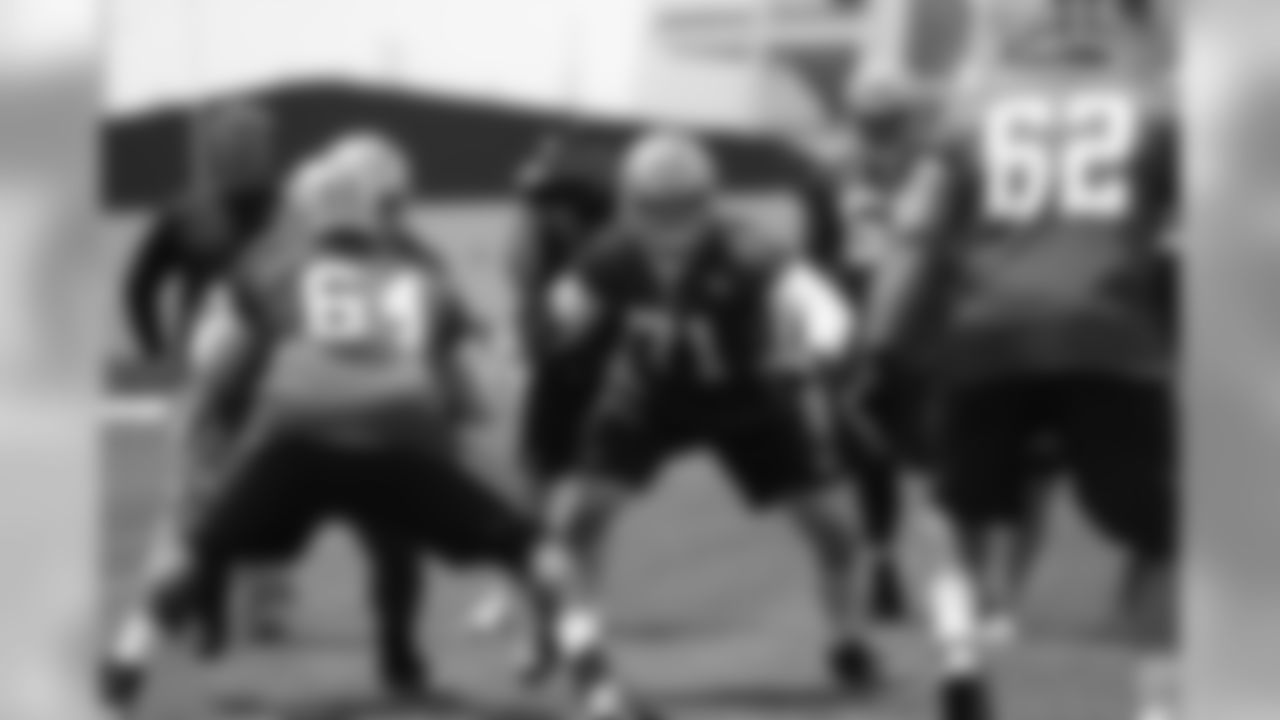

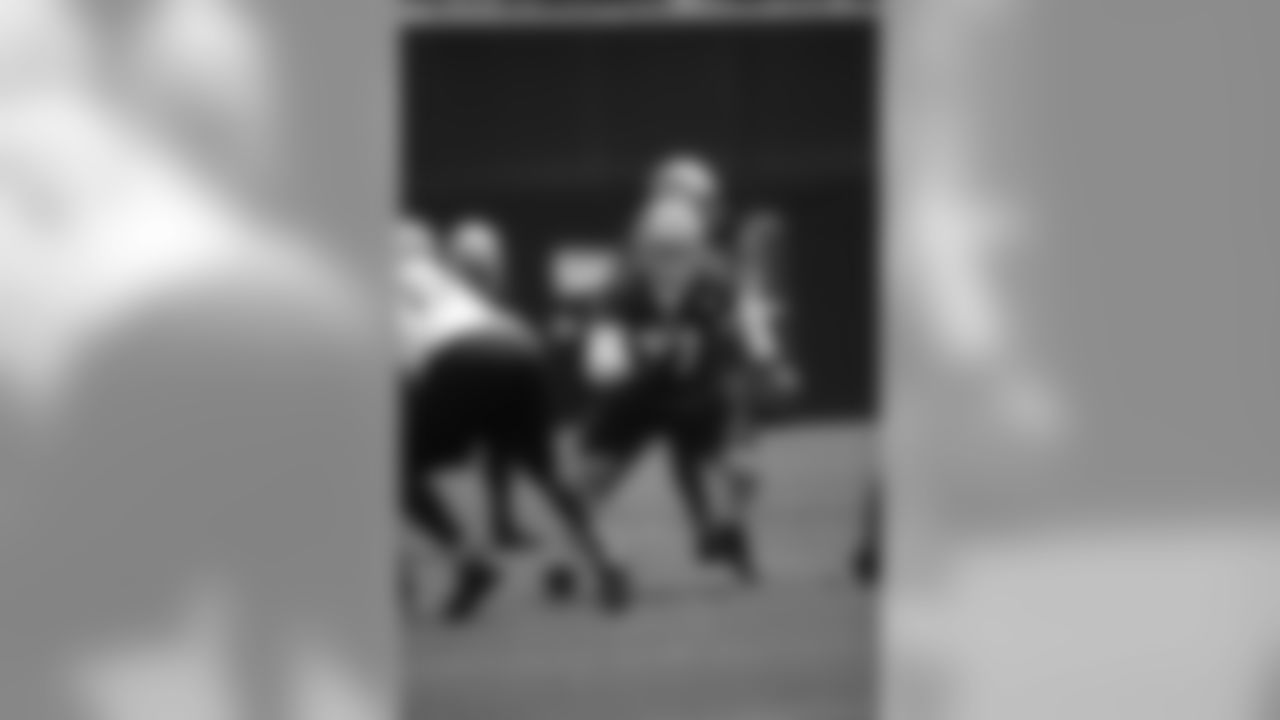
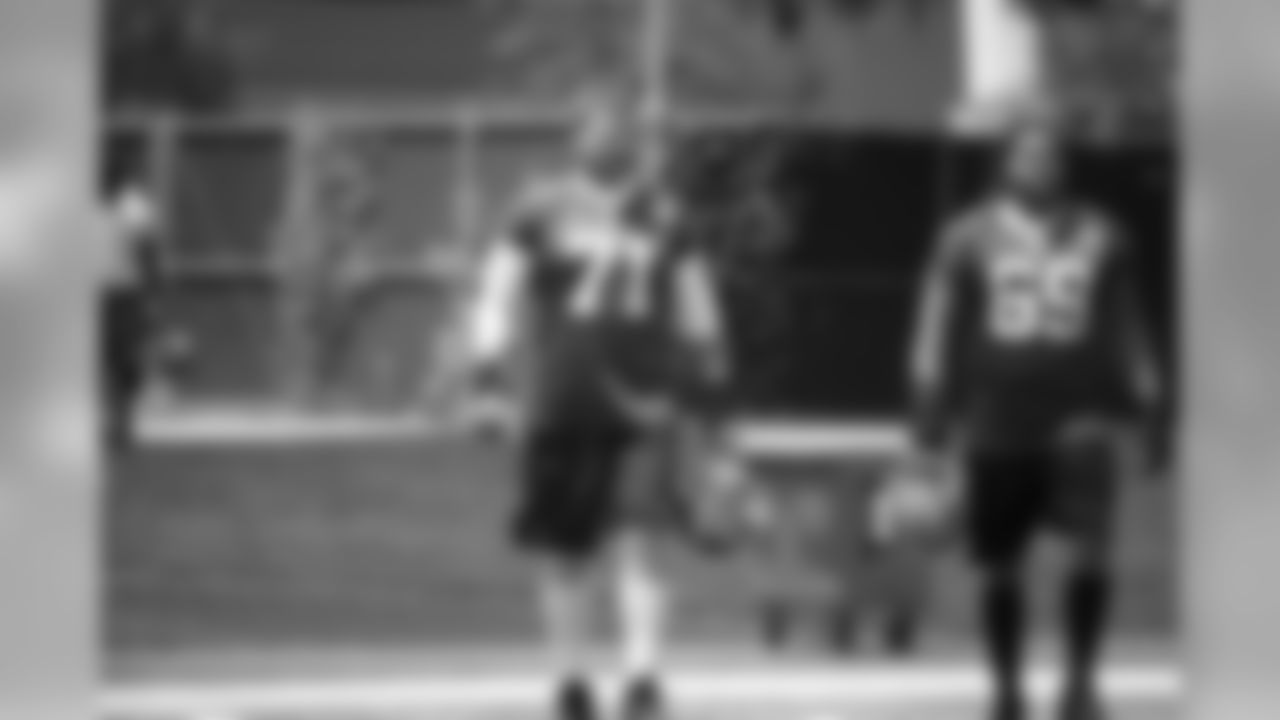

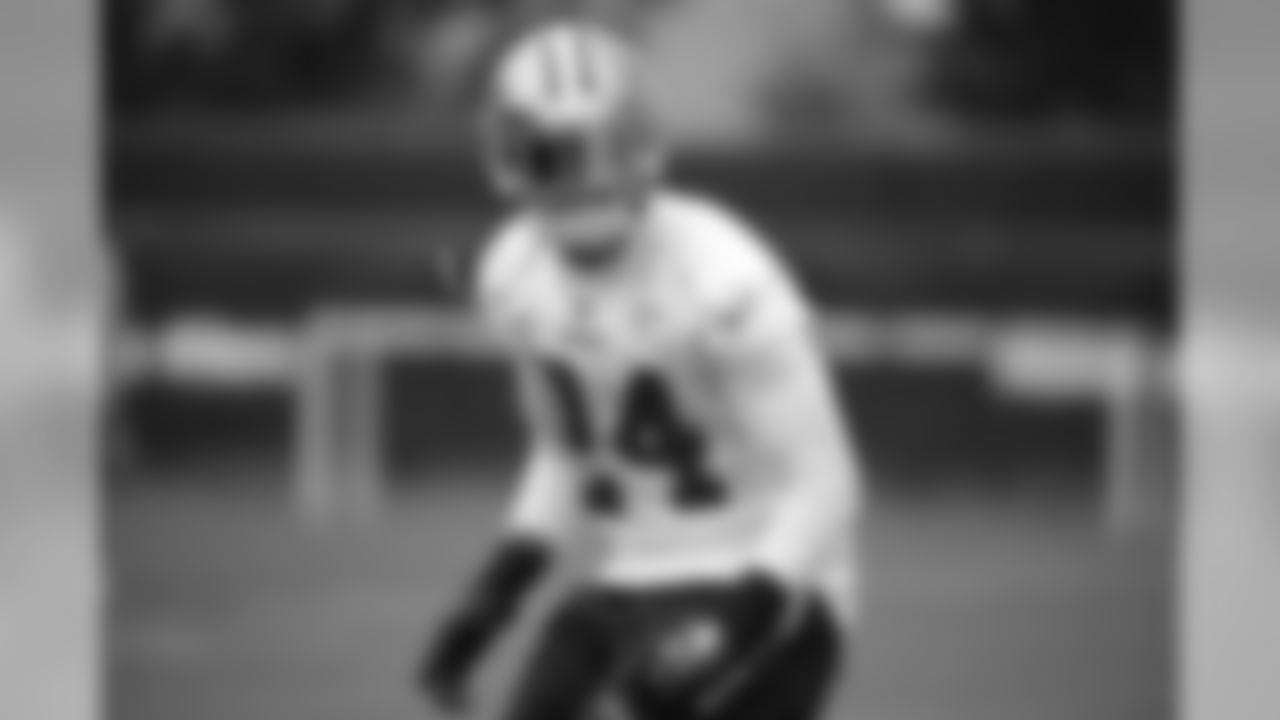

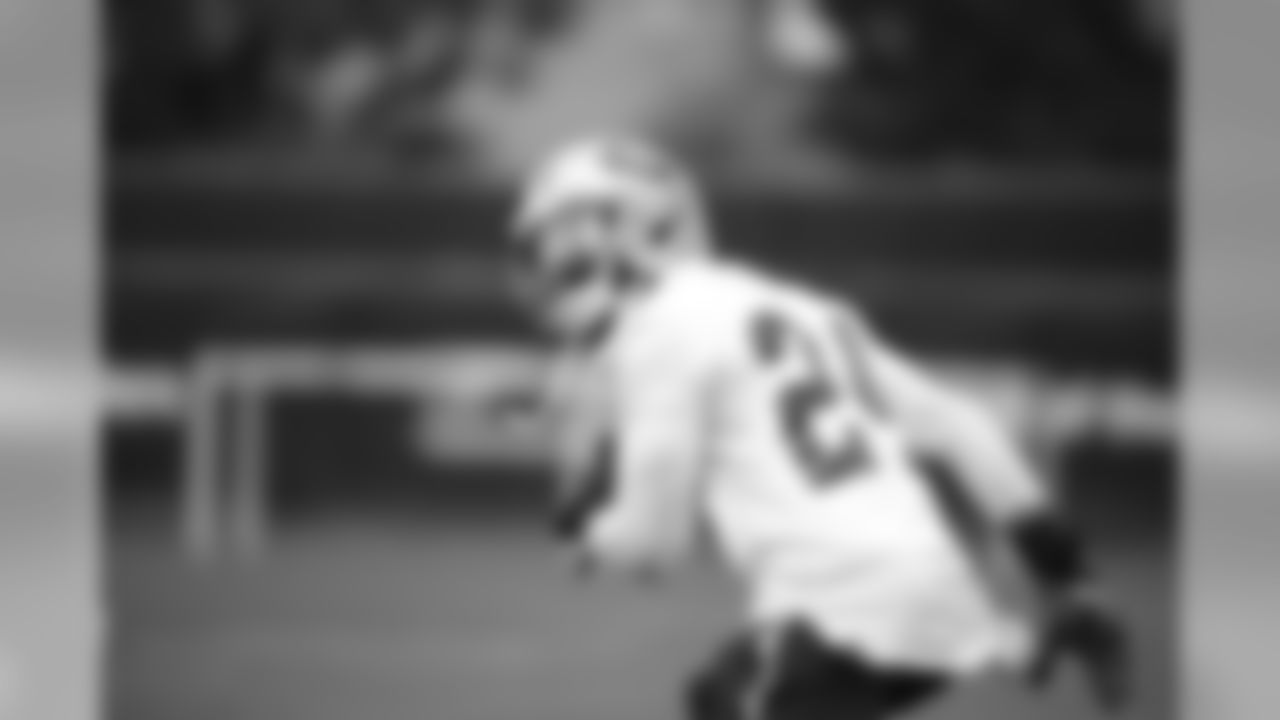



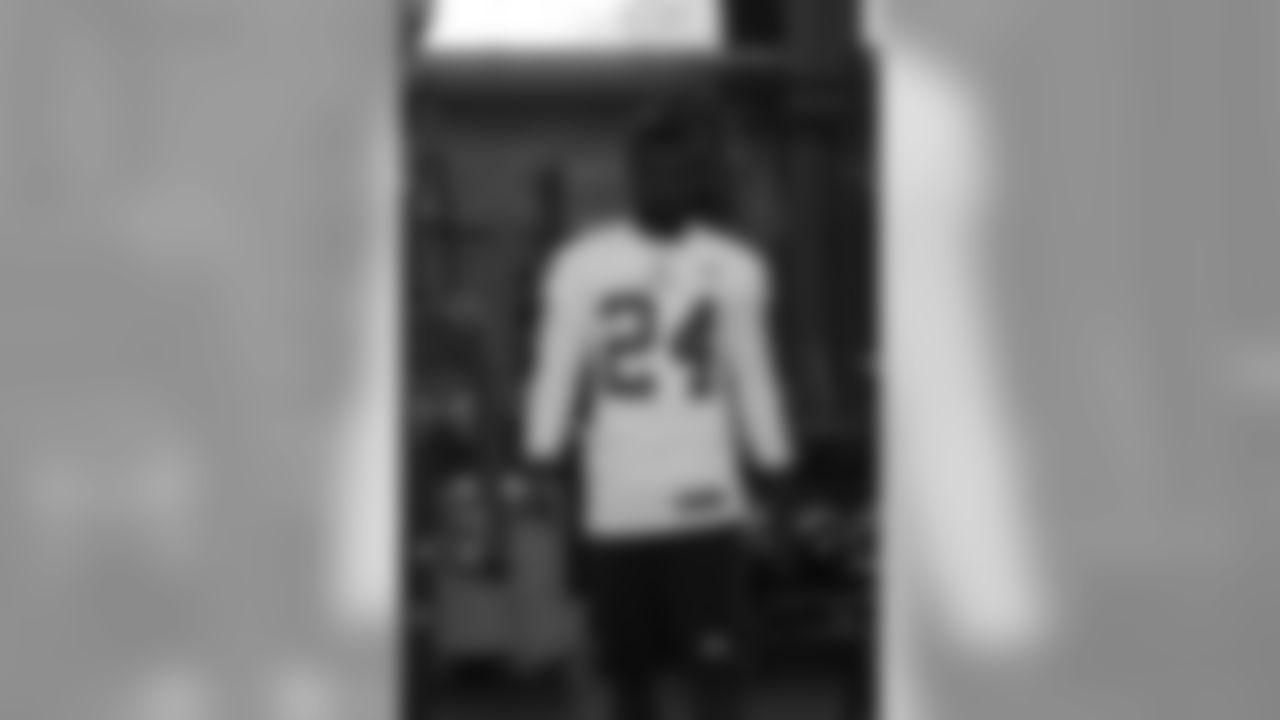
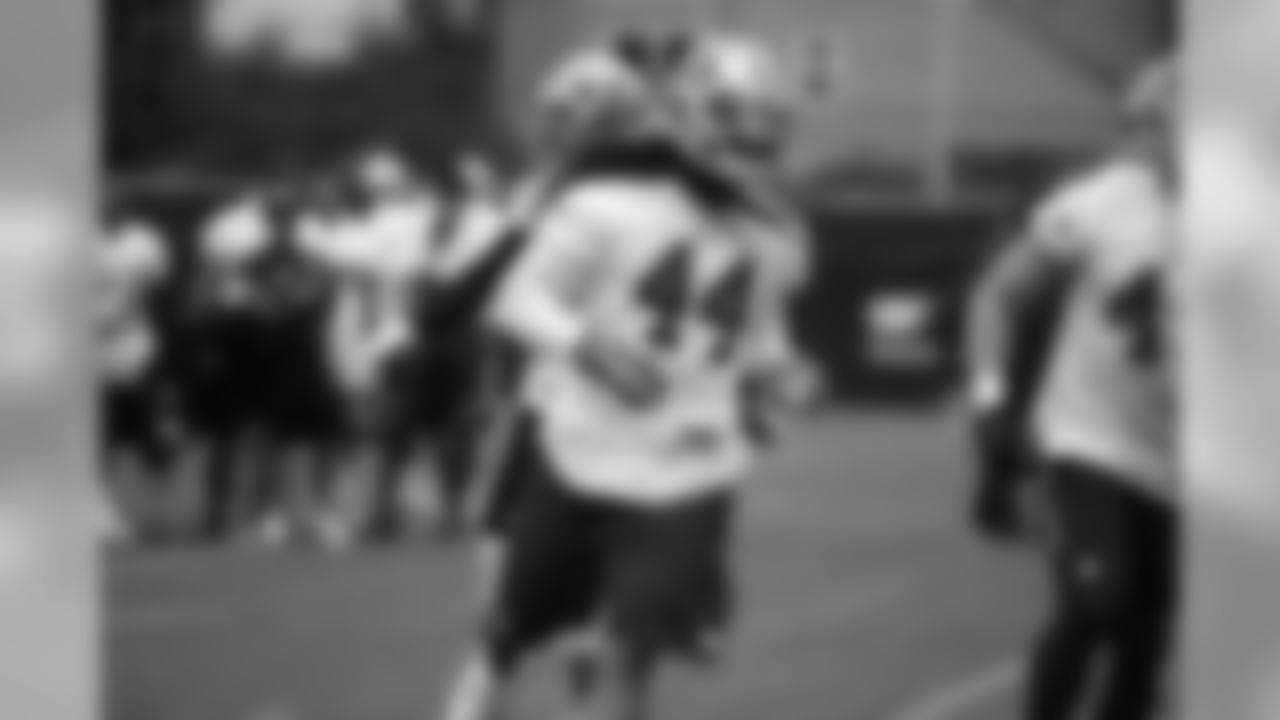
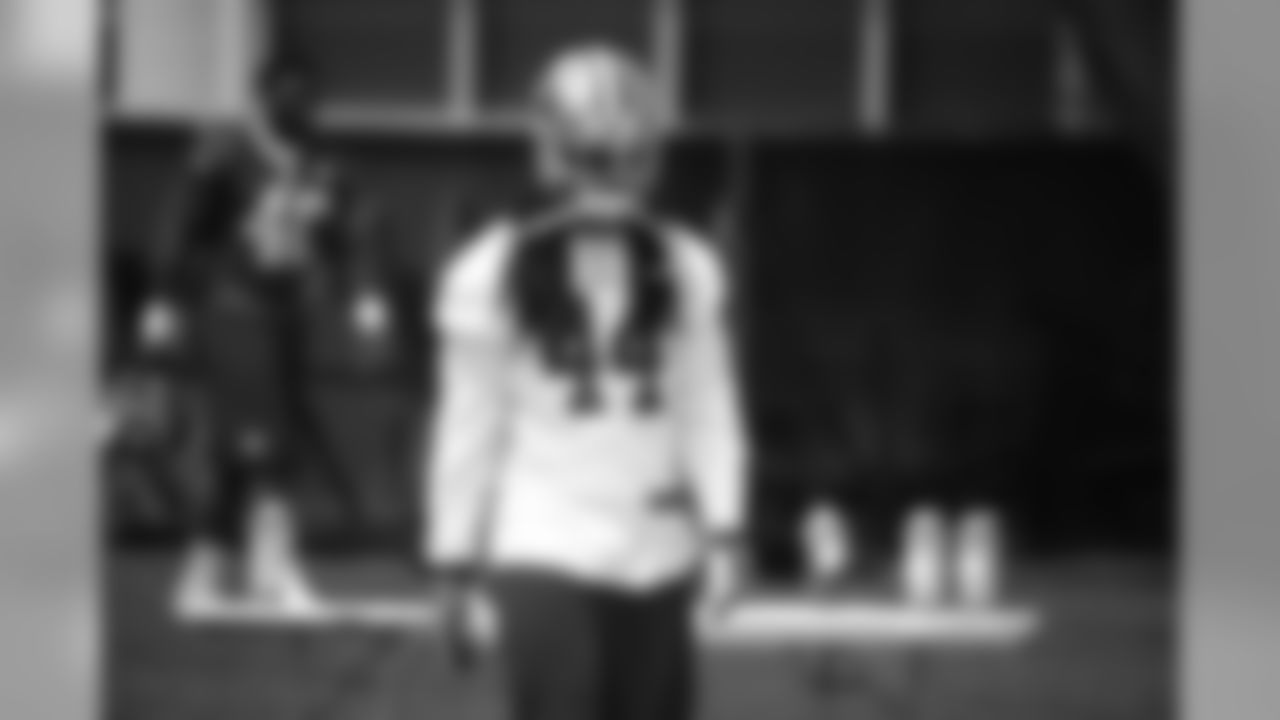


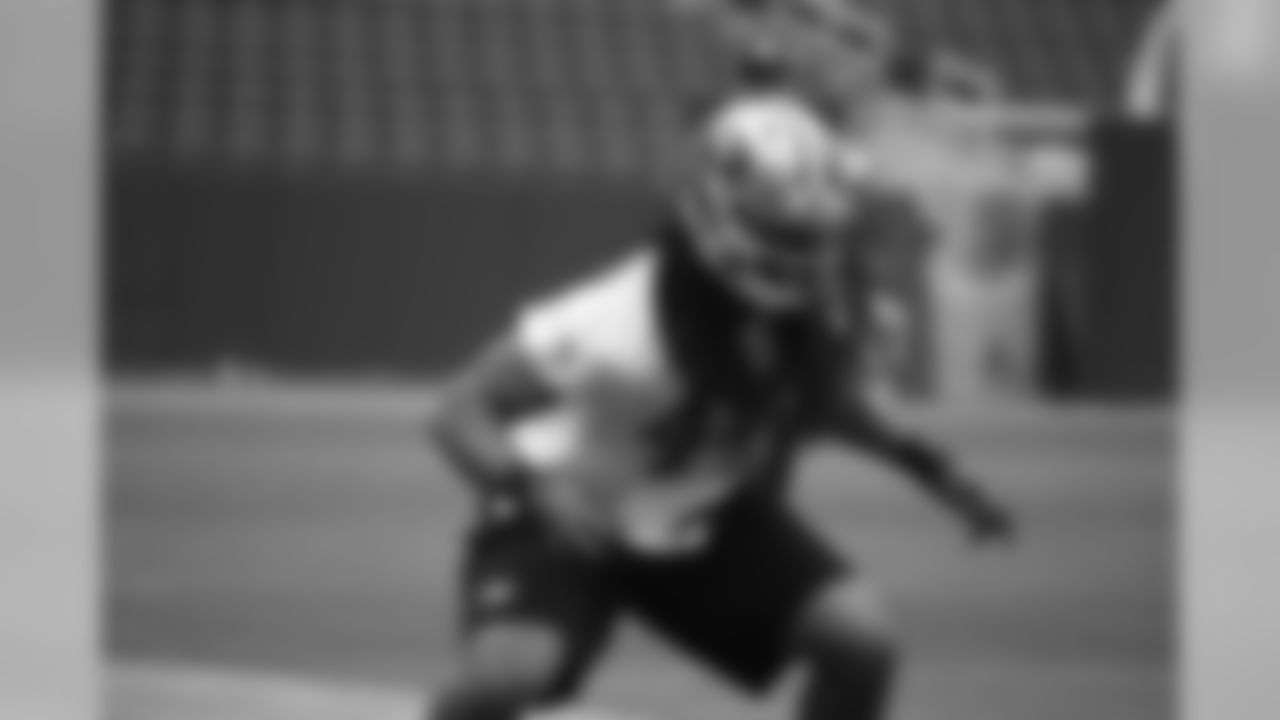
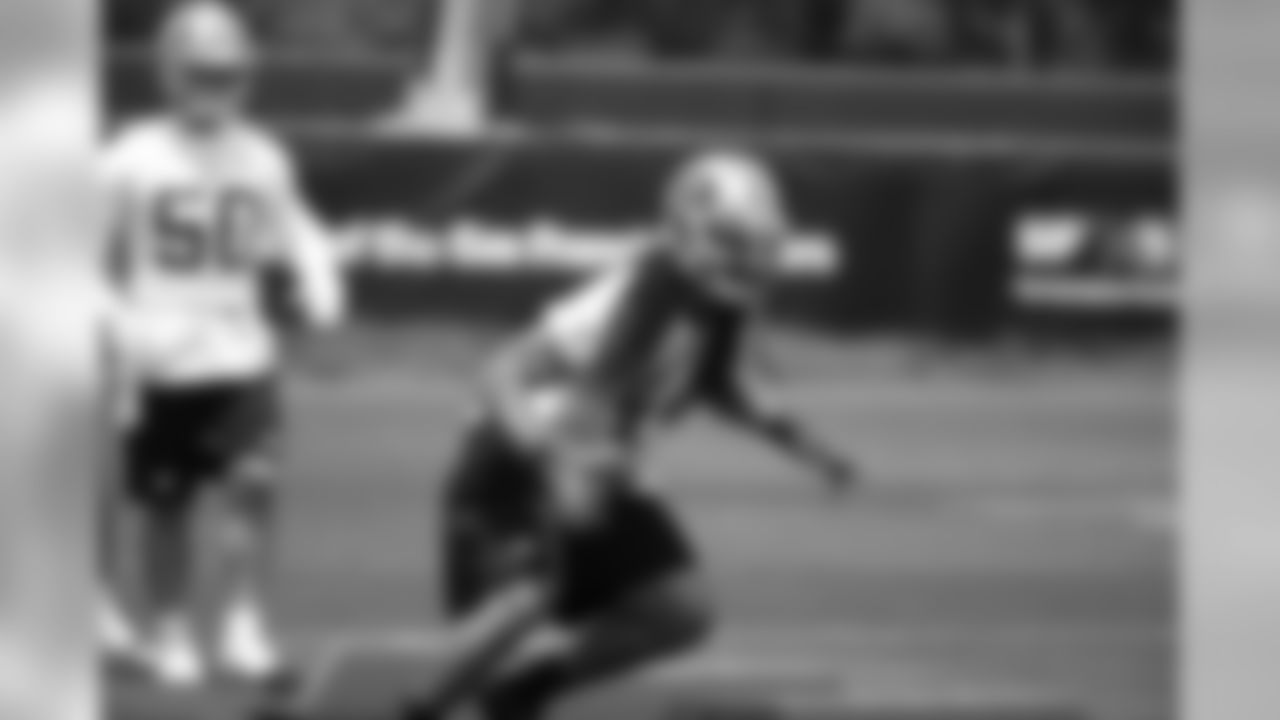

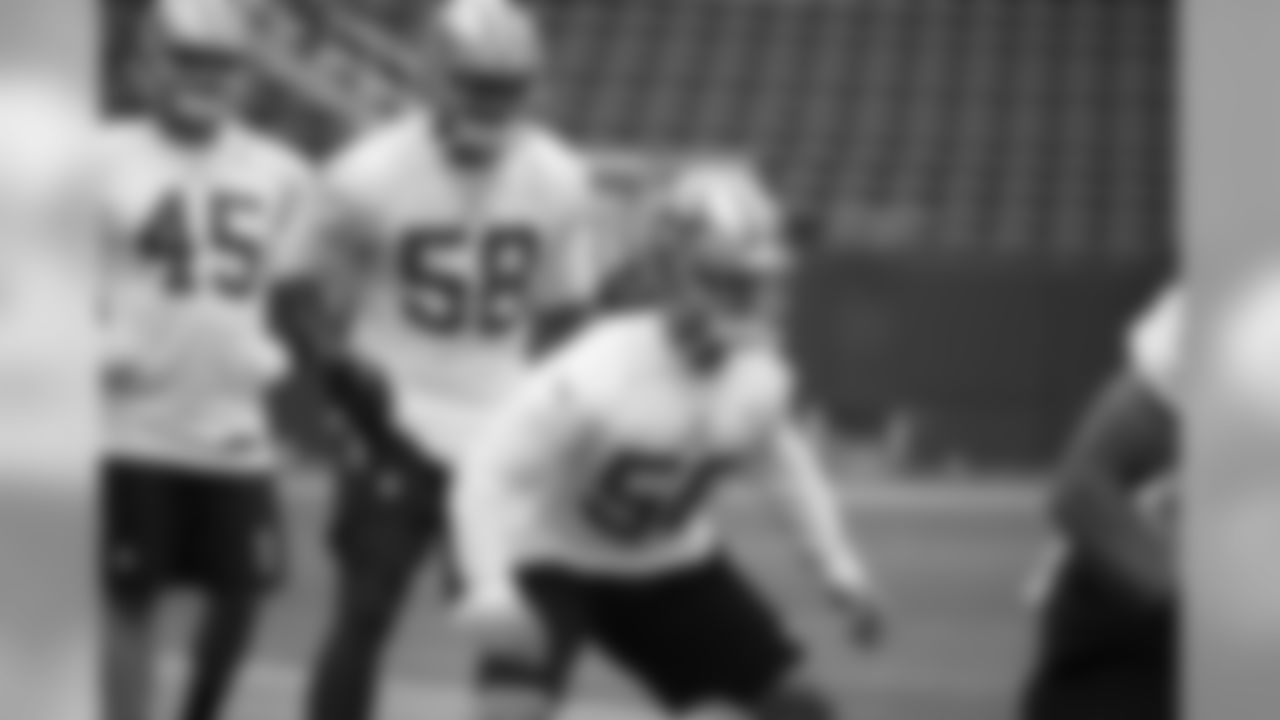
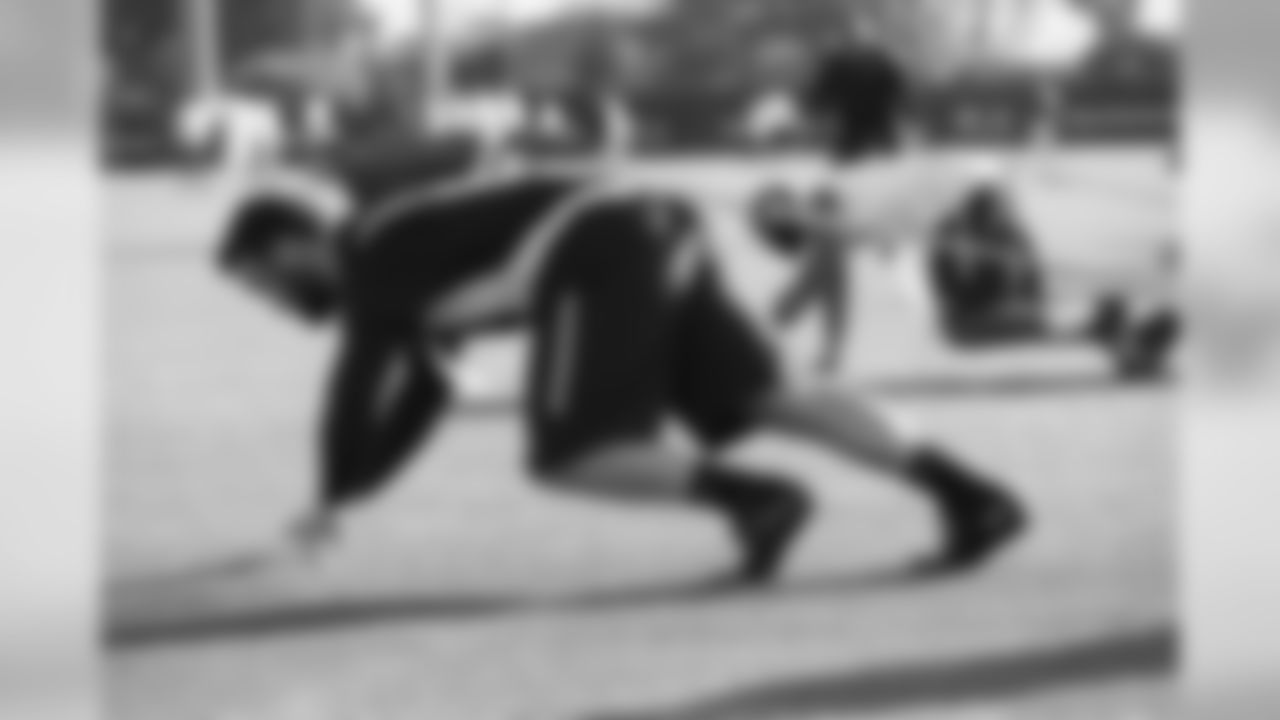
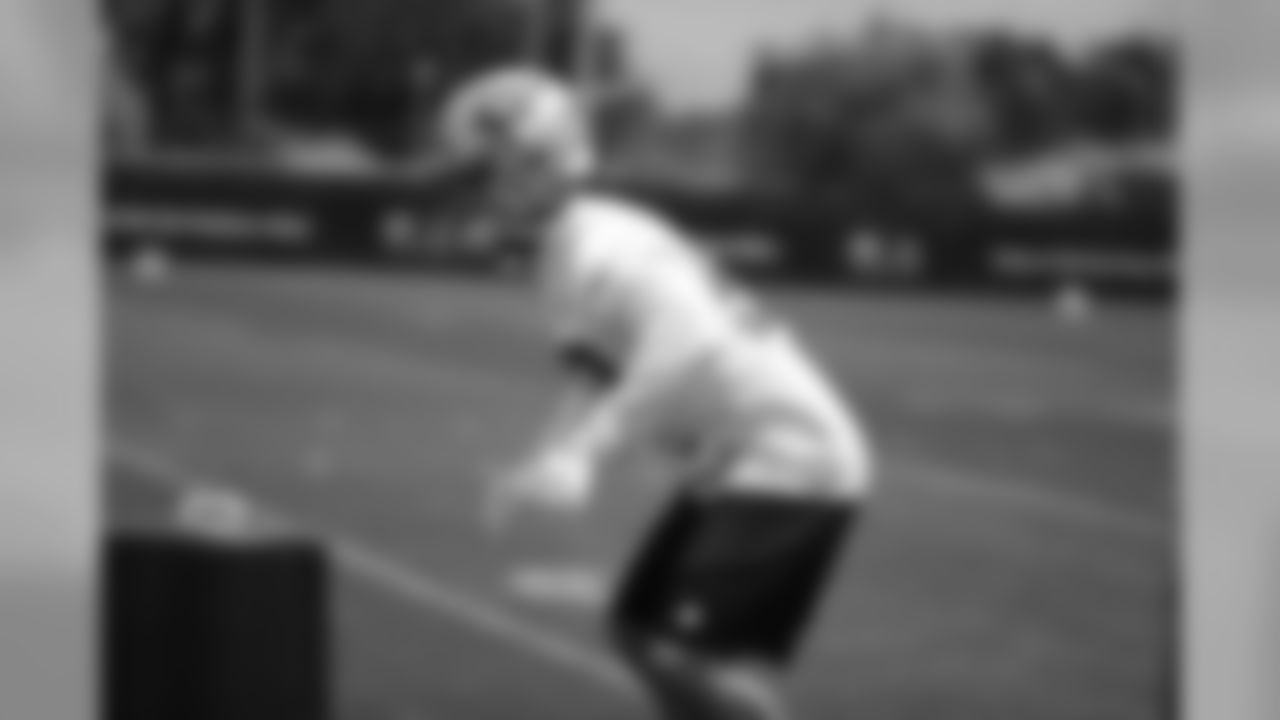


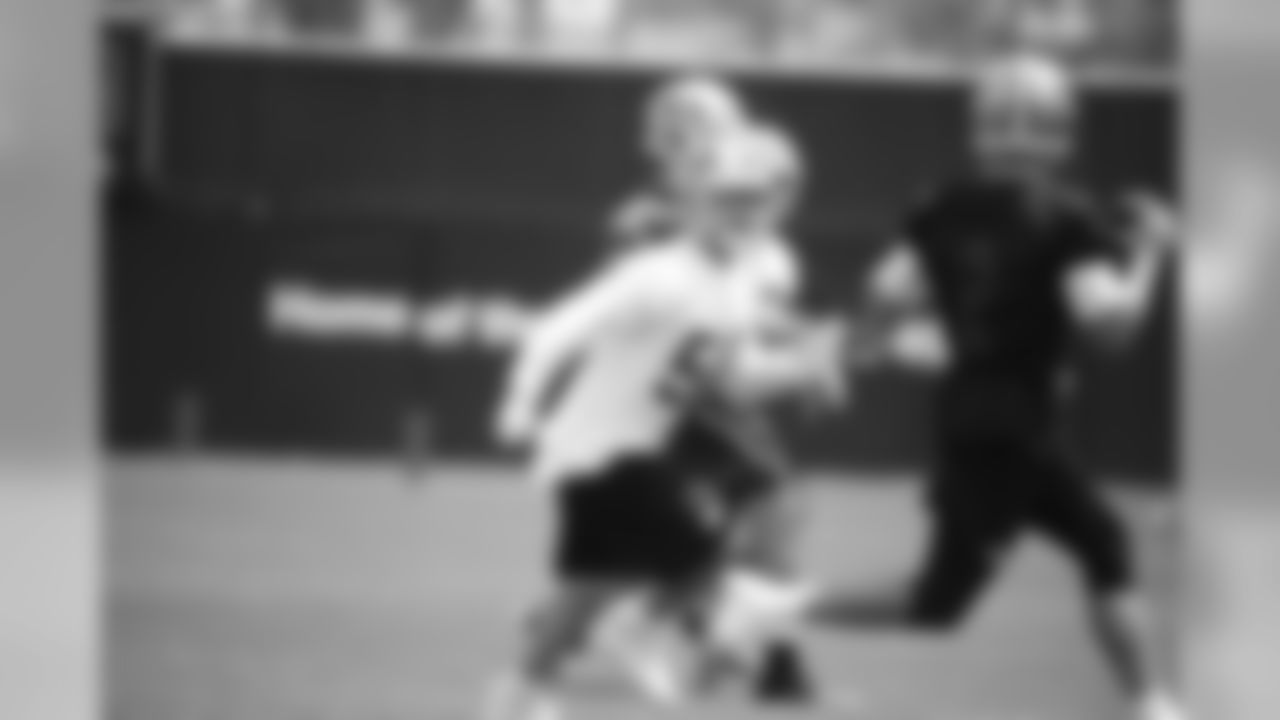
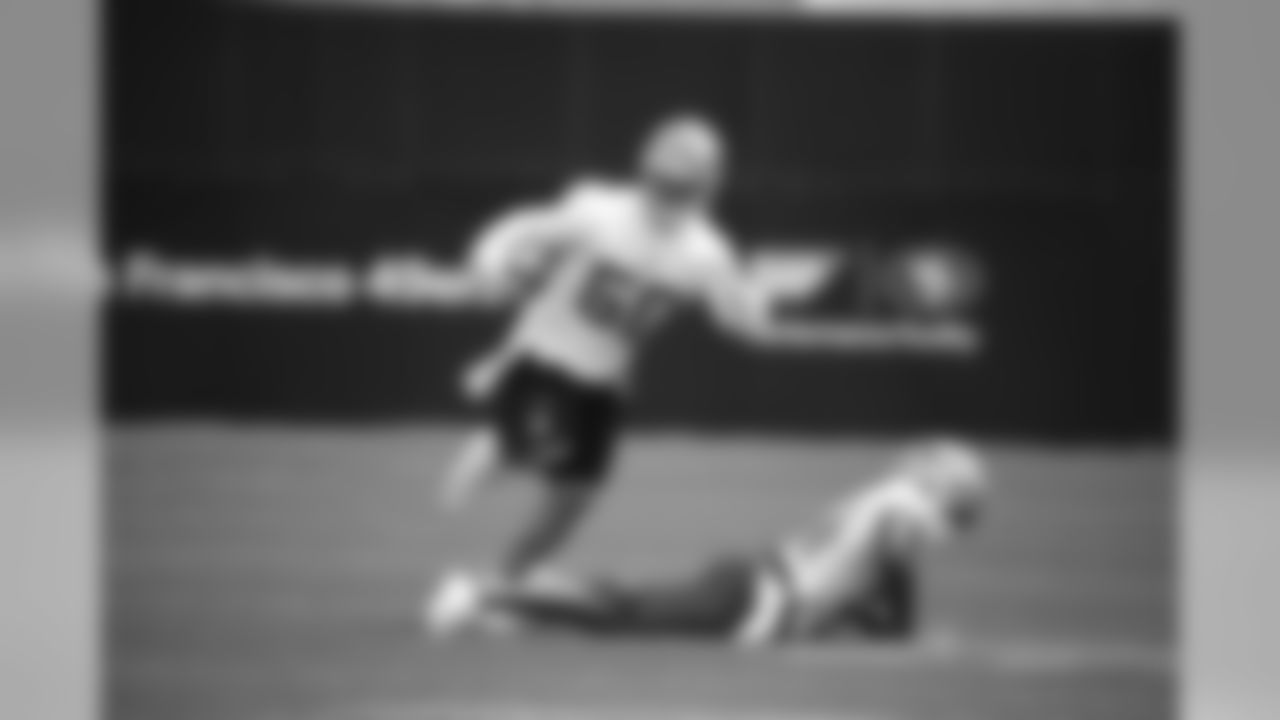

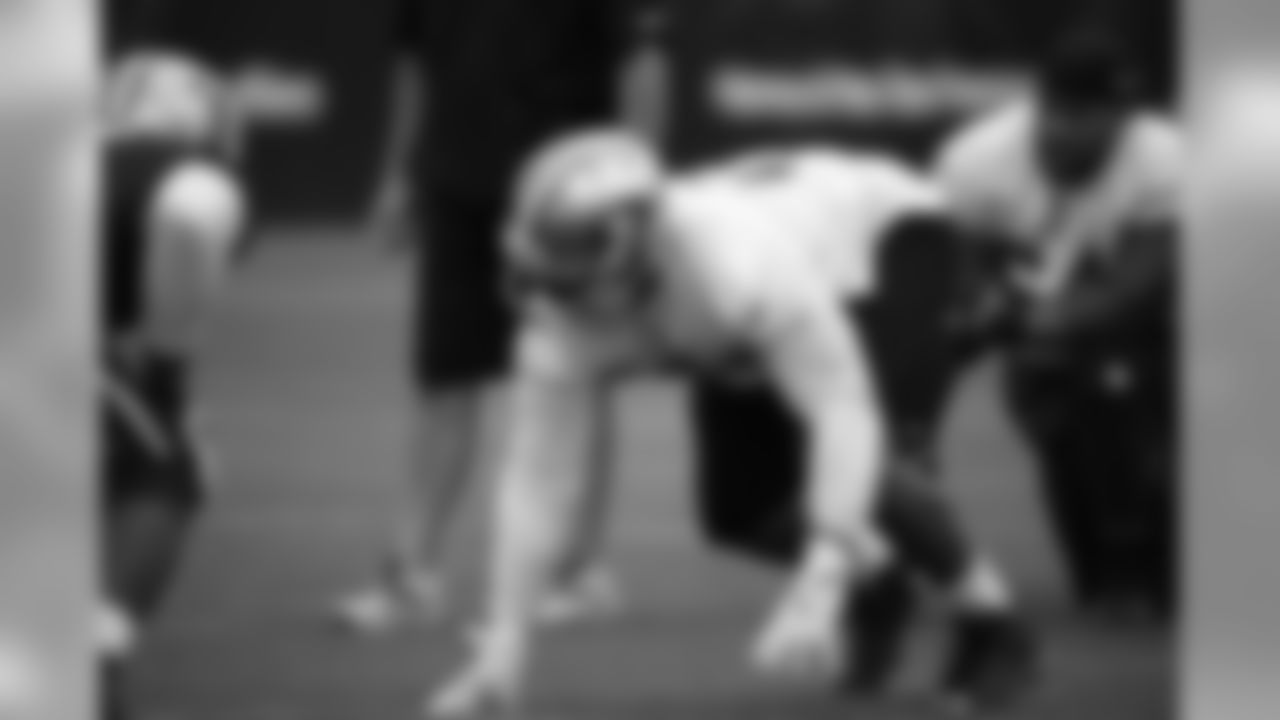
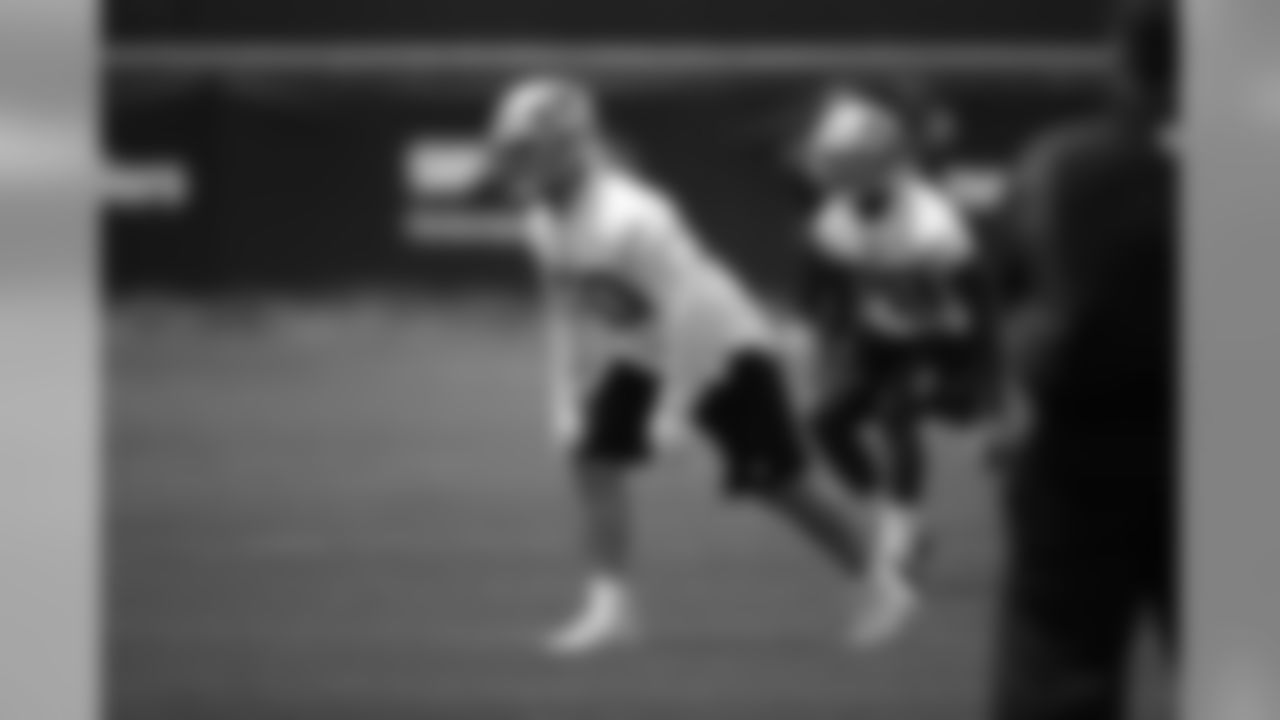

KR:** It can get long, so you have to keep trying to do something to get yourself better each day. You can't just go through the motions and do the same things. You have to challenge yourself.
DA: Waiting to get back to the game. It's fun to have time to rest, but it's even more fun to do what you love. So I would say waiting for the season to come is the hardest part.
DF: You're not playing the game… Football is fun, right? You miss out on that in the offseason, and also you don't get paid in the offseason. A lot of people don't know that. ... It's also tough to be away from your teammates at times – that's why it's like the first day of school when you get back for training camp. That's pretty exciting.
GC: How short of a window we have. We're responsible to put together a team. We want to keep everyone healthy, but by NFL mandate, we only have a seven-week window to work with these guys. Quite honestly, it forces guys to go outside of our building to find technique work. I think we've got talented people in this building, but I understand why the NFL wants to limit some of it. But I think within the newly constructed CBA that we're under, you'd like to have little bit more time where even if we're working against air, we're working on individual techniques. As a coach, we like coaching – that makes us feel like a coach when we're working with our players.

AB: We have a new defense going in, so I'm trying to know the defense like the back of my hand and be able to help get players in position to make plays, be able to get myself in position to make plays. As far as trying to be a technician of the game, I'm always going to try and be a good coverage guy. With where the league is going now, safeties have to cover great tight ends, good receivers now, so I always practice on my coverage. Then as far as tackling, although we're not tackling now, I try to work on getting in position to be a great tackler. As a safety, you have to be a great tackler. So that's what I focus on and try to get better with.
**
KH:** For me, it was about getting in a groove and going against other opponents. I was able to get into my run reads, and (run) fits, and just get used to going up against somebody else. It's time for me to get back into training my eyes and going up against a defender. It was different for me because I was only doing rehab work before (OTAs and minicamp). I feel like rehab is rehab, and football is football.
KR: Honestly, I've been trying to improve a lot because I haven't played in so long. The first thing was trying to get my movement back and normal. The second thing was getting my techniques back, my eyes right. I've been working on a lot of different things.
DA: I would say working on being a whole receiver – I'm trying to do everything right. I don't want to be one-dimensional in any way. I want to improve as a blocker, catcher, route-runner, everything.
DF: I want to be stronger, so spending time in the weight room was important for me. I'd also say playing with more of an attitude is important. I think I have the ability and the talent, I wouldn't be here without that, but having that mindset of playing hard and playing vicious, is important, too.
GC: The players had to embrace the new direction we were taking things, and Jimmy T was great trying to put a recipe together where we weren't building things from scratch to make it authentic and tailored to our guys. I'm really most proud of the fact that the whole offense has really embraced the direction that we're going. We haven't had the lecture or cajole or urge people to move forward. That's been readily apparent.

AB: I love the staff. Coach (Jim) Tomsula going from the d-line coach to the head man – just his personality and his charisma, the way interacts with the guys – I don't think it can get any better than that. Coming from a player's perspective, when you have a guy that you know that is really loyal to you and wants to see you do well, I just think it bounces back. The guys want to work harder for him, so that's going to be great. Coach (Eric) Mangini is a smart guy. Just sitting in the meeting rooms and listening to him talk and listening to him install the defense; you can just tell how smart he is. And if that rubs off on all guys out there on the playing field, we're going to have a great time making a lot of plays. Coach (Tim) Lewis, having one DB coach in the room coaching the corners and safeties, it's something different but I think he's the guy for it. He played 12 years in the league at the top of the game when he was in the league, so he knows what we're going through and what we're looking at on the field. And he can transfer that knowledge and all the things he went through to the safeties to the corners. So, so far, so good as of right now.
**
KH:** I think it's been good with the new staff, but the biggest thing I've seen is the team coming together. The running back group came together, and we were pushing each other to get better. I think it was that way with each individual (position) group. We were all doing the same thing. And when we go out there, we try to bring it all as one and try to make it work.
KR: I like them. I think they're player's coaches. They take a lot of input from the players as far as the schedule and the way we do things.
DA: Our coaches are great. Coach Henry, Coach Curry, they're great guys. You can tell they're very intelligent. You can tell they know a lot about what they're doing and they've done their thing for a long time in both the college and professional levels, so it's great to learn knowledge from them.
DF: I like the coaches a lot. They're fun to be around. We have a lot of fun, but we get a lot done. The atmosphere is very business-like, but also being able to laugh and share stories is important. It's been fun. Jimmy T, he's an awesome guy. He loves the players, and we appreciate that. I'm excited to see what happens this year.
GC: You need to be on the field to put everything together. You assemble all these components. You assemble the staff. You have good recommendations from people who have worked with them in the past. Then you work with them collectively, and then ultimately, you go out on the practice field and that's when it comes to life. I've enjoyed watching all of the individual drills. There's some really good teaching going on, and again, we're wired as coaches. We like seeing improvement through the simple, fundamental execution of a practice plan.




